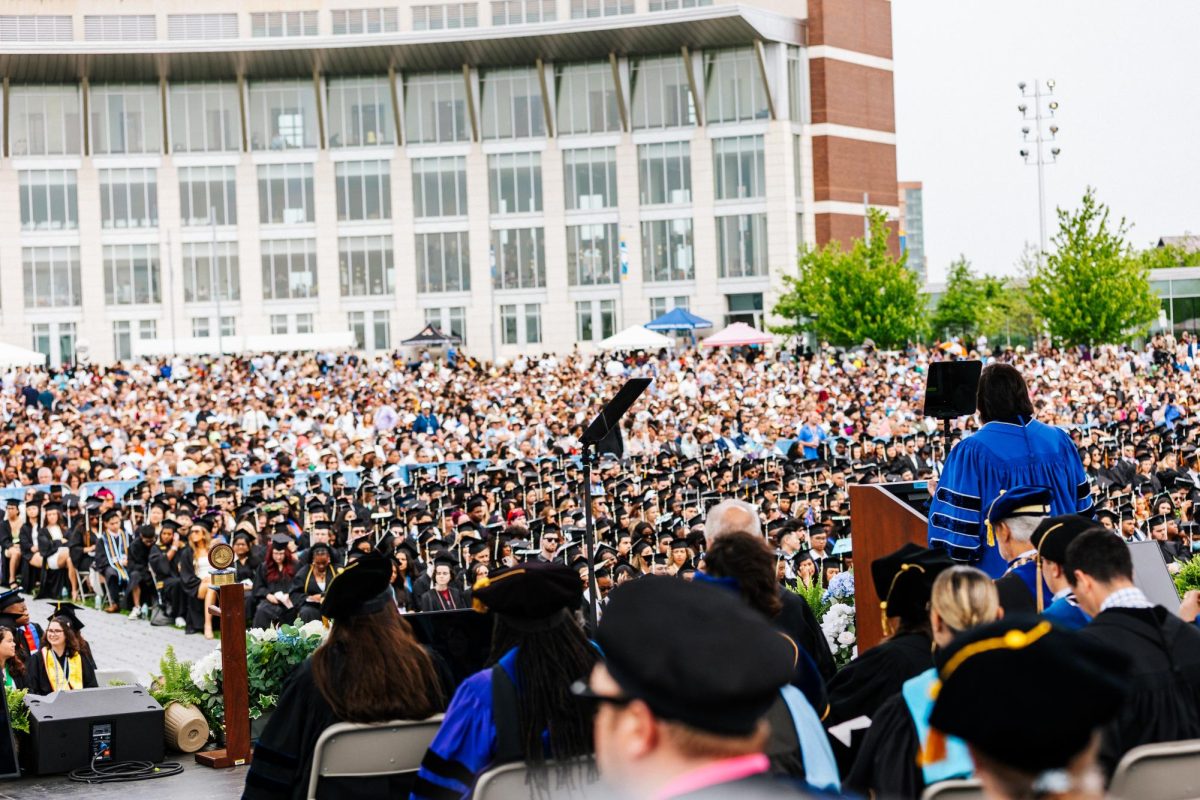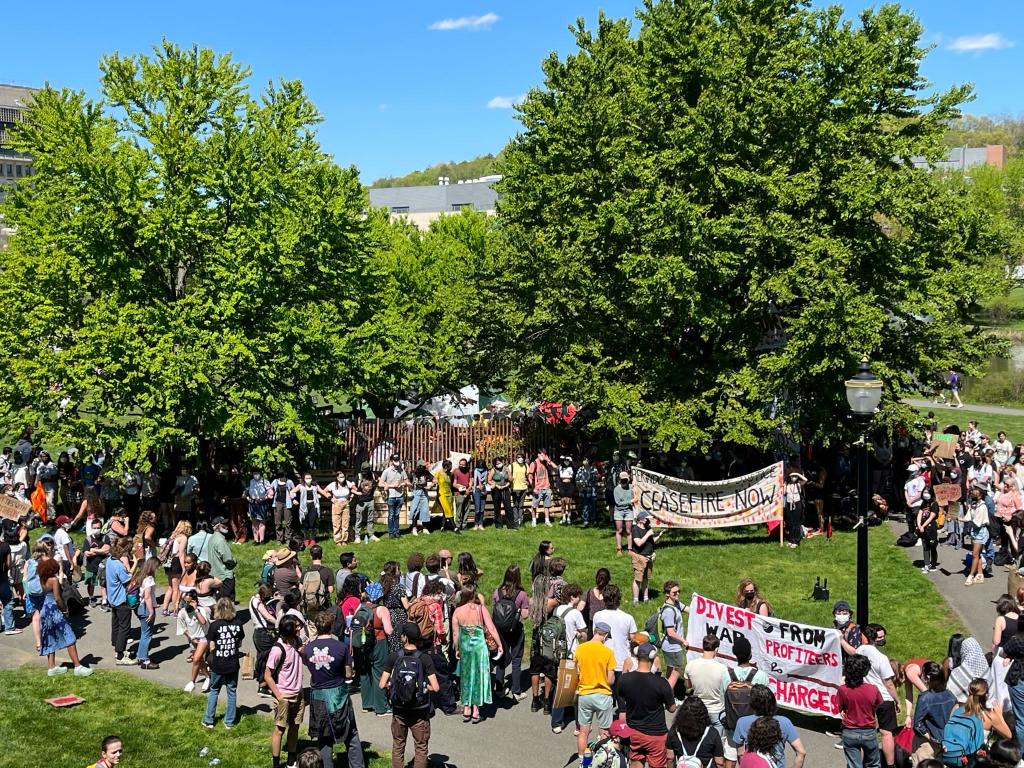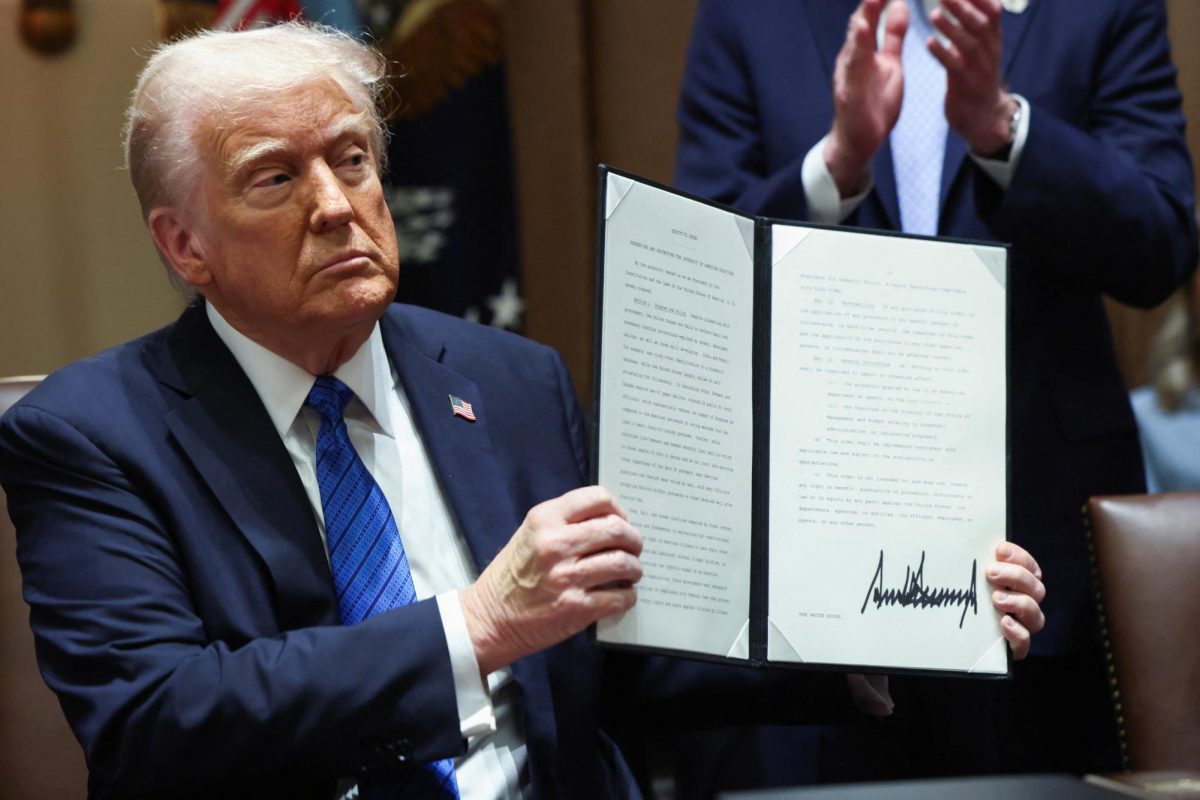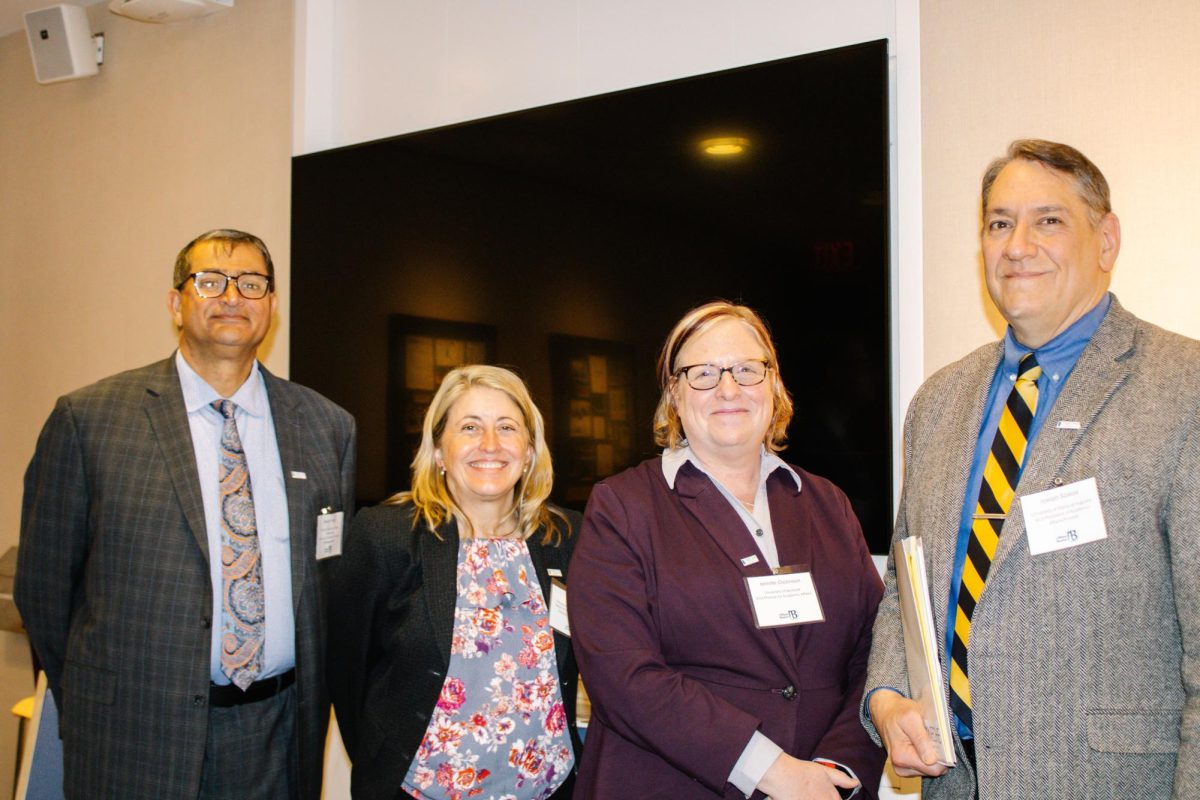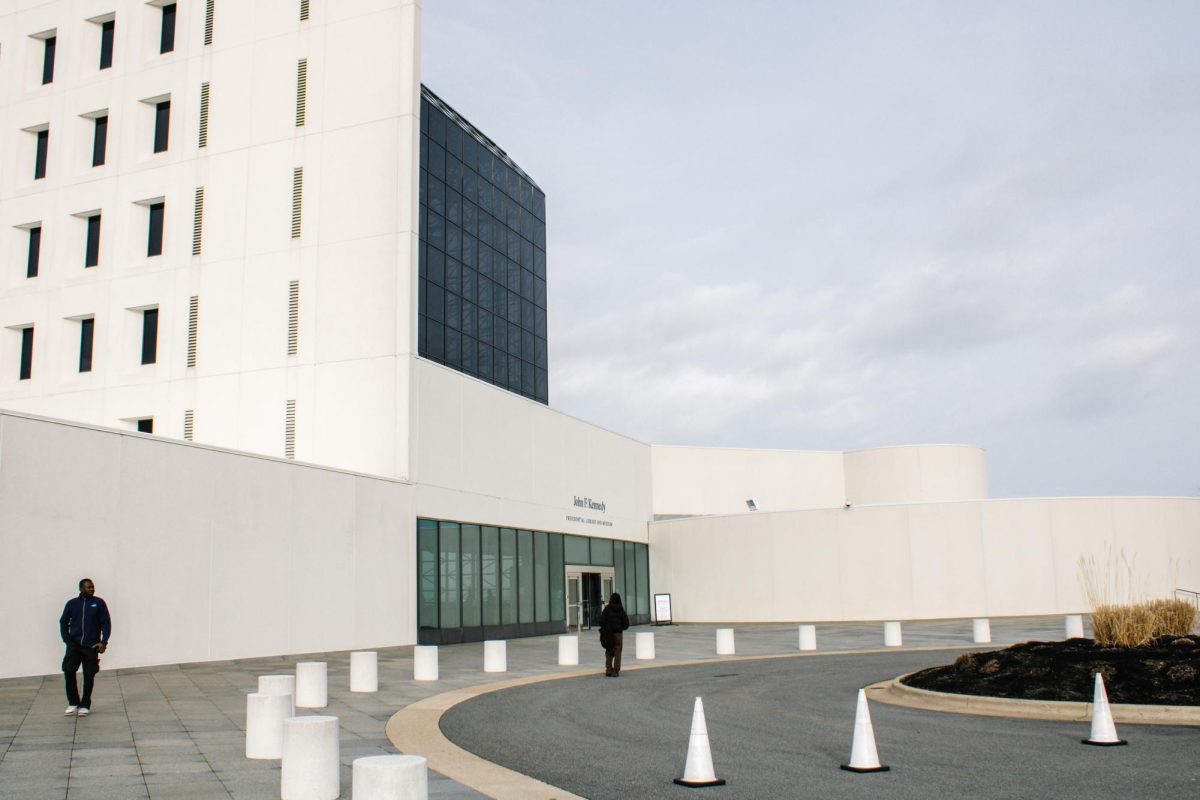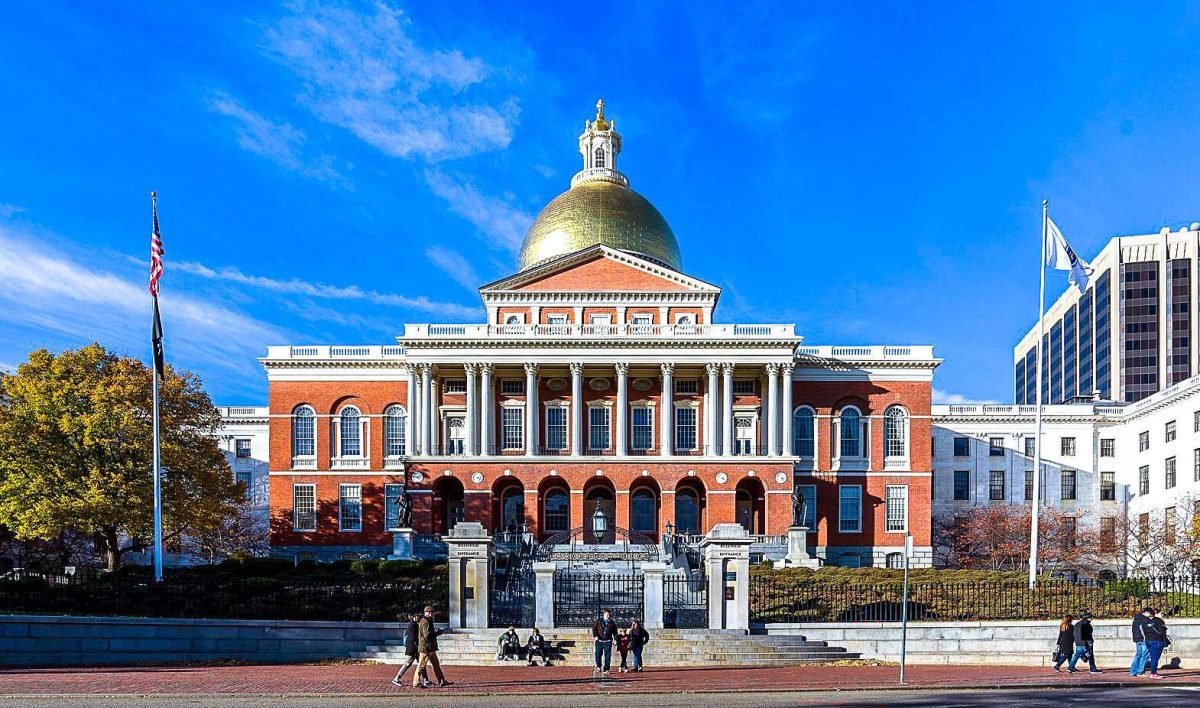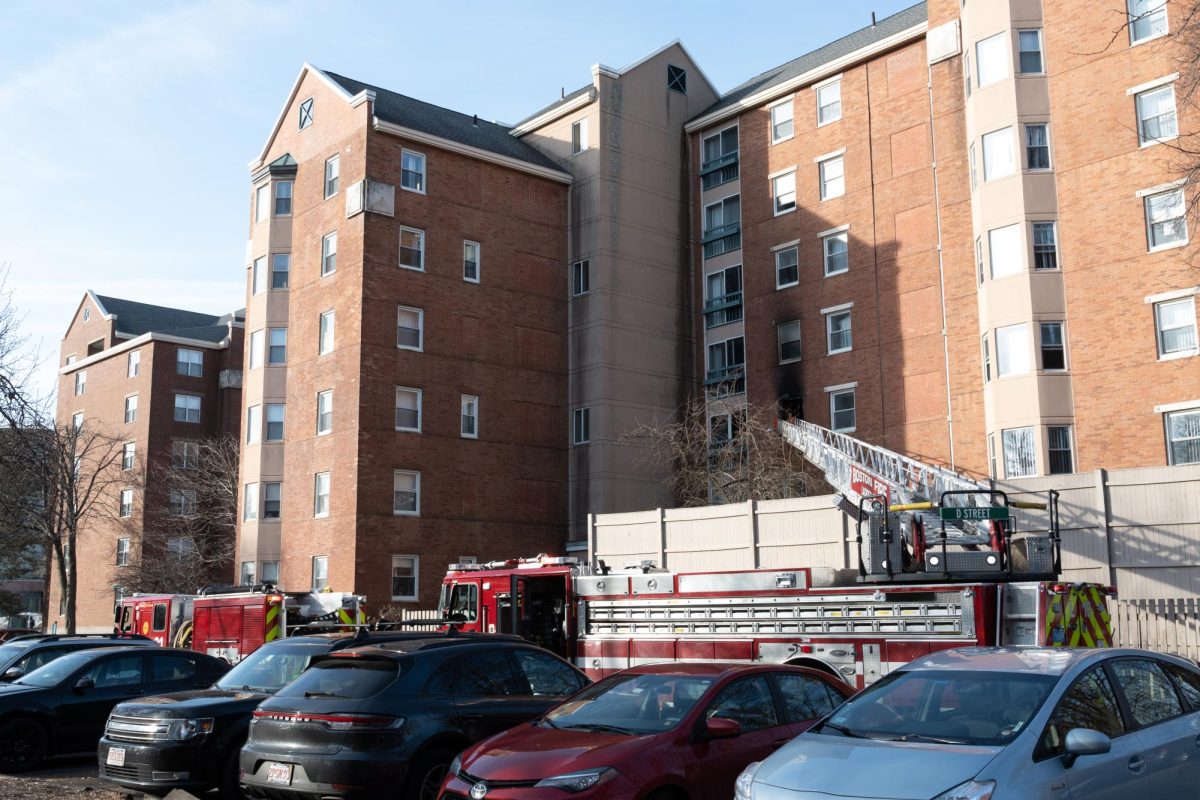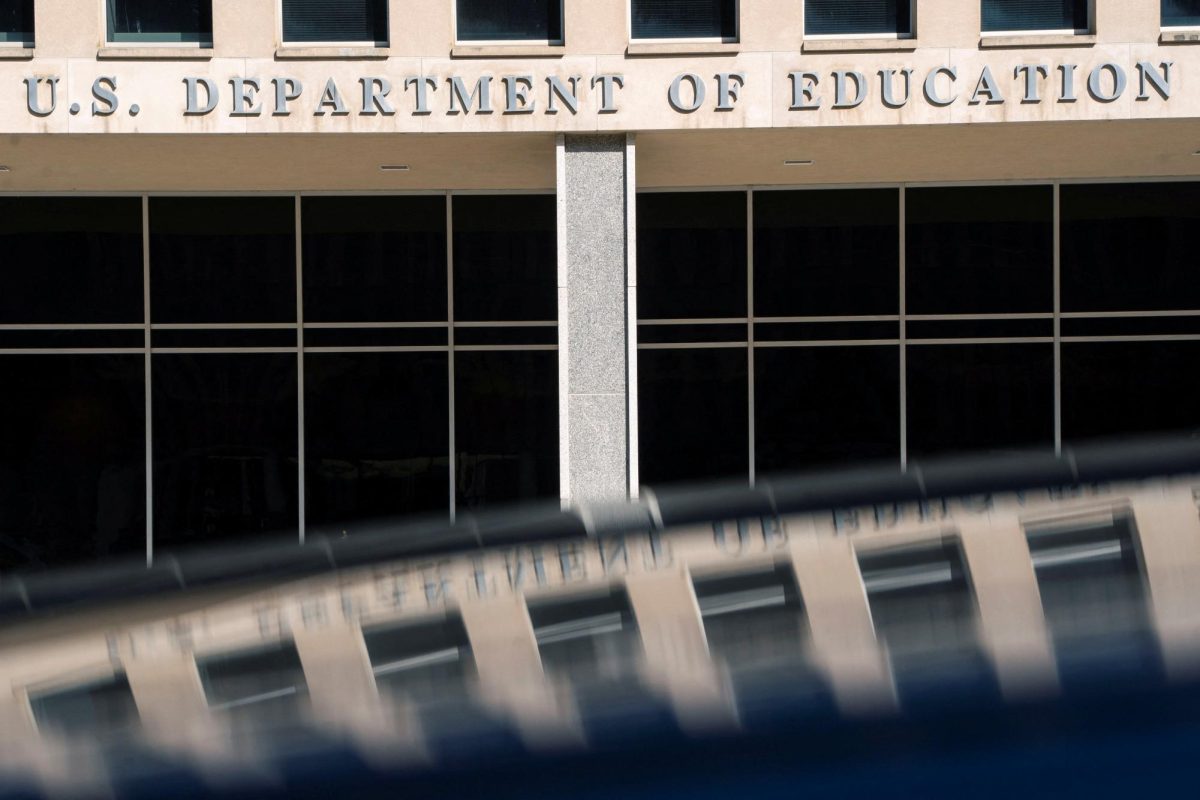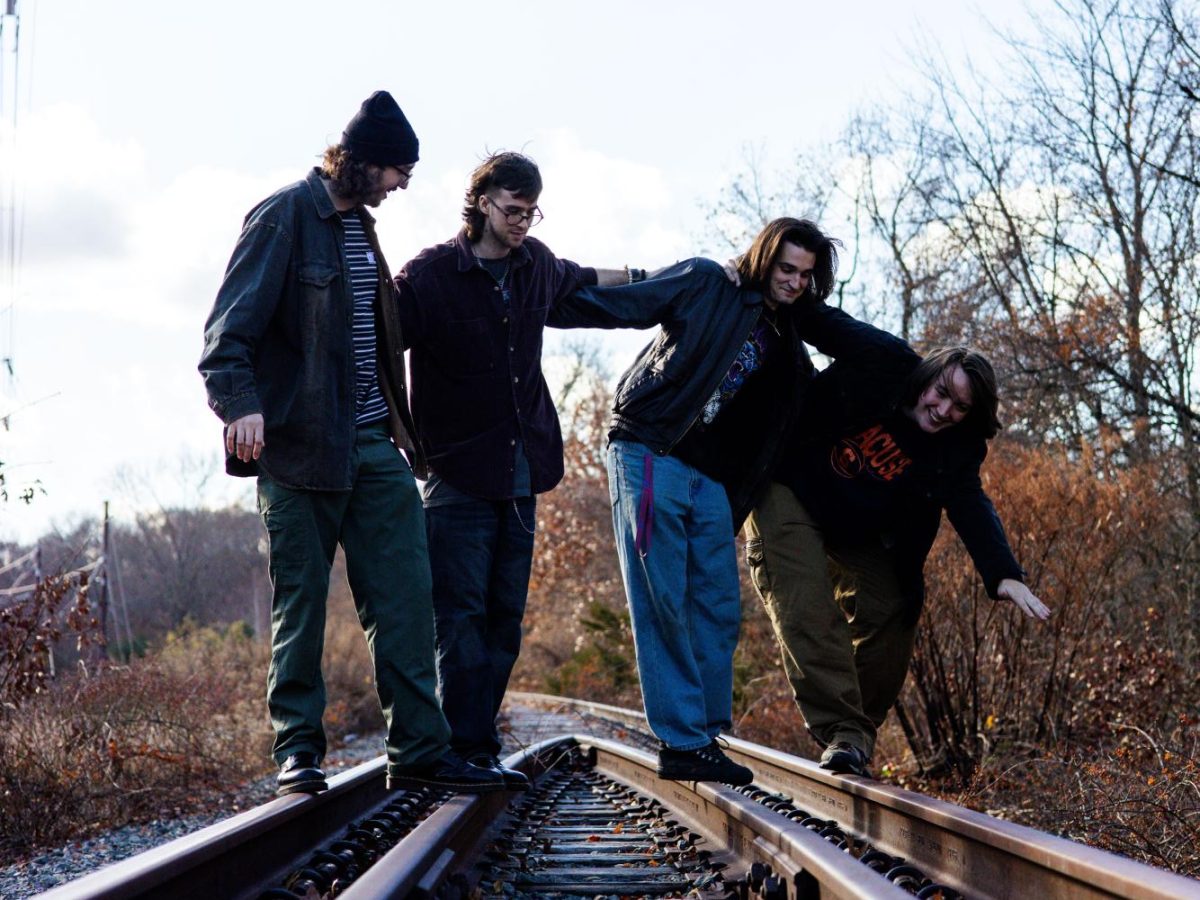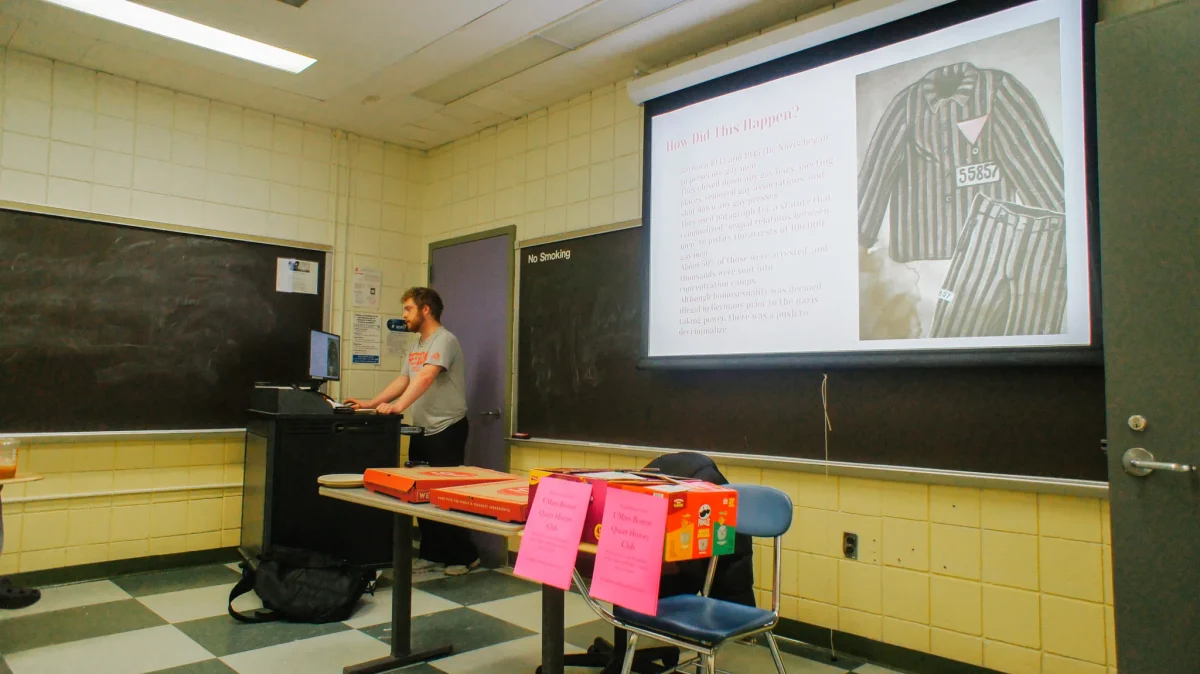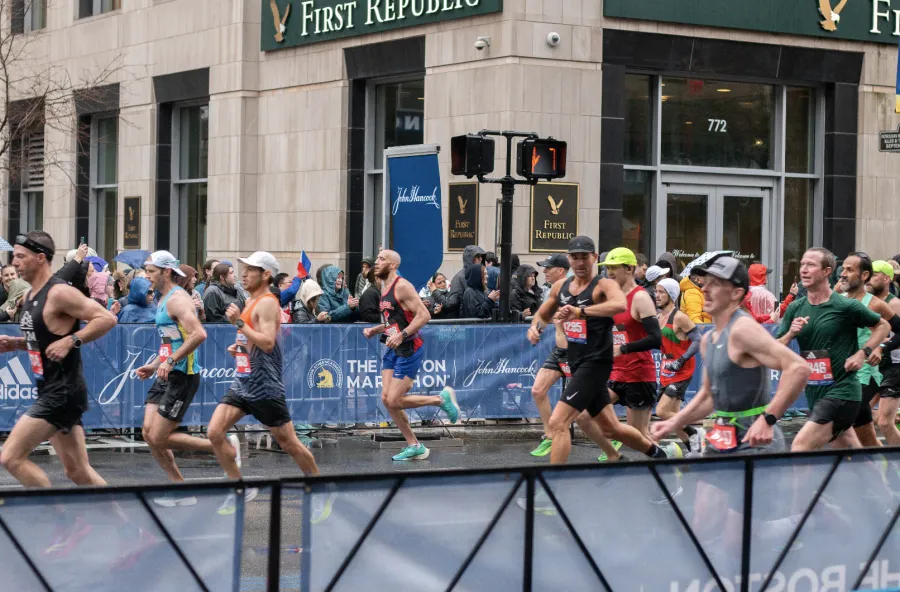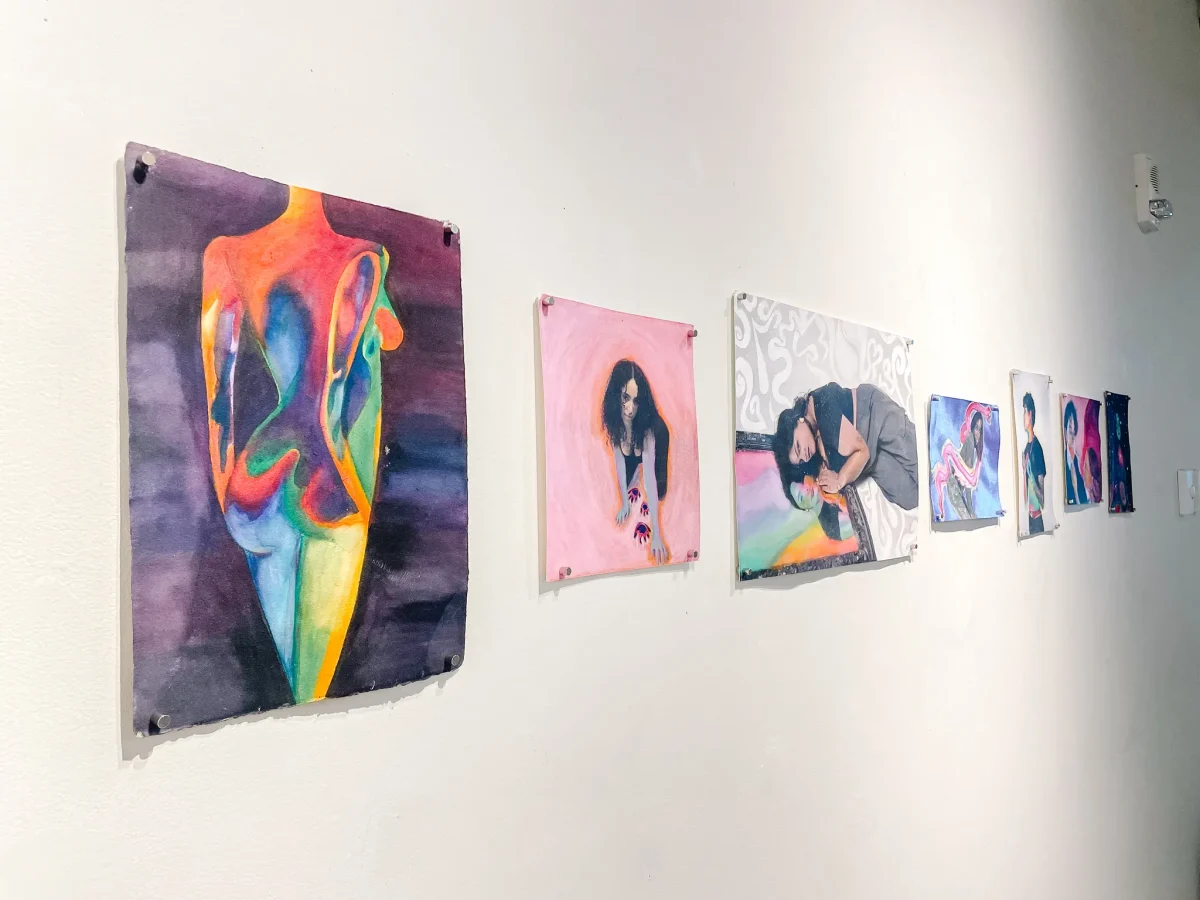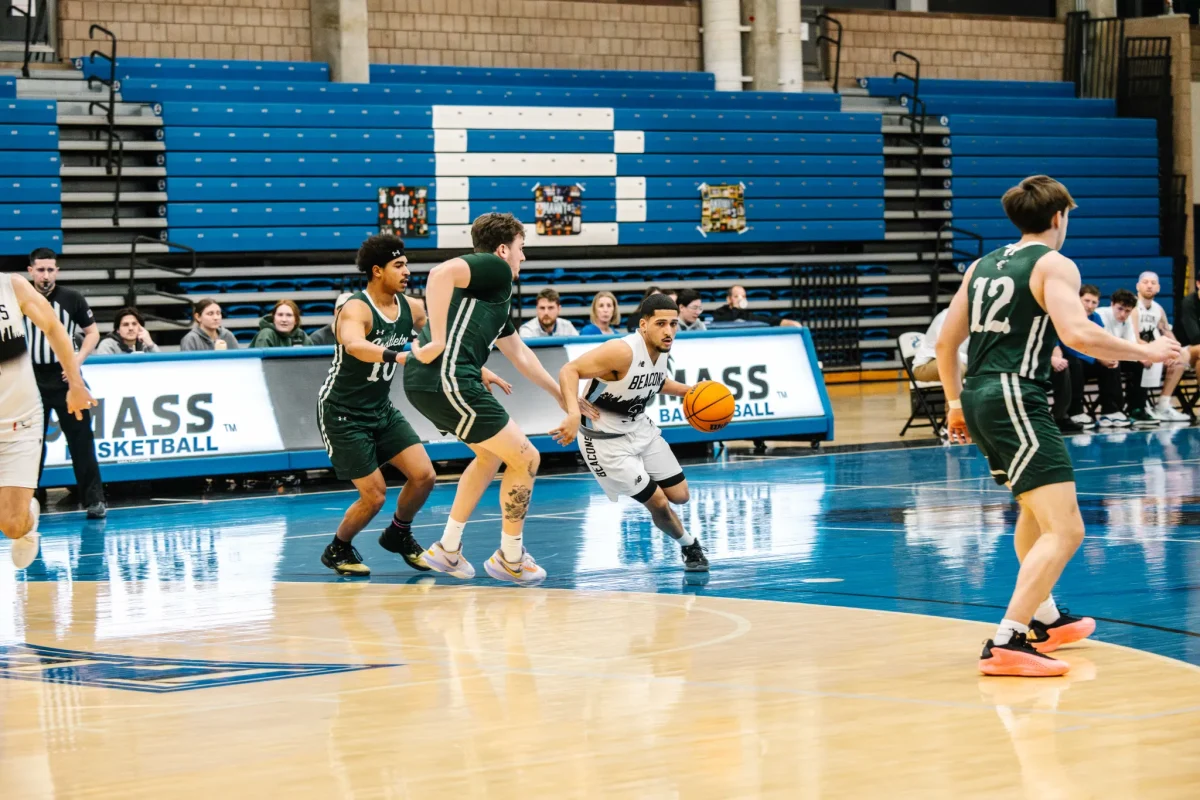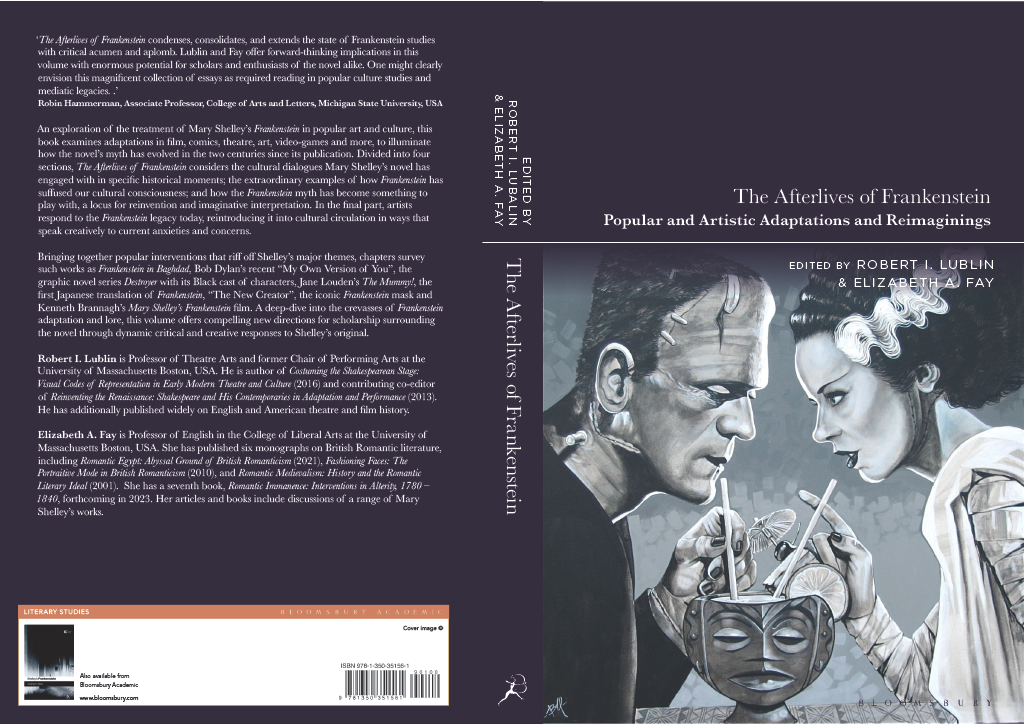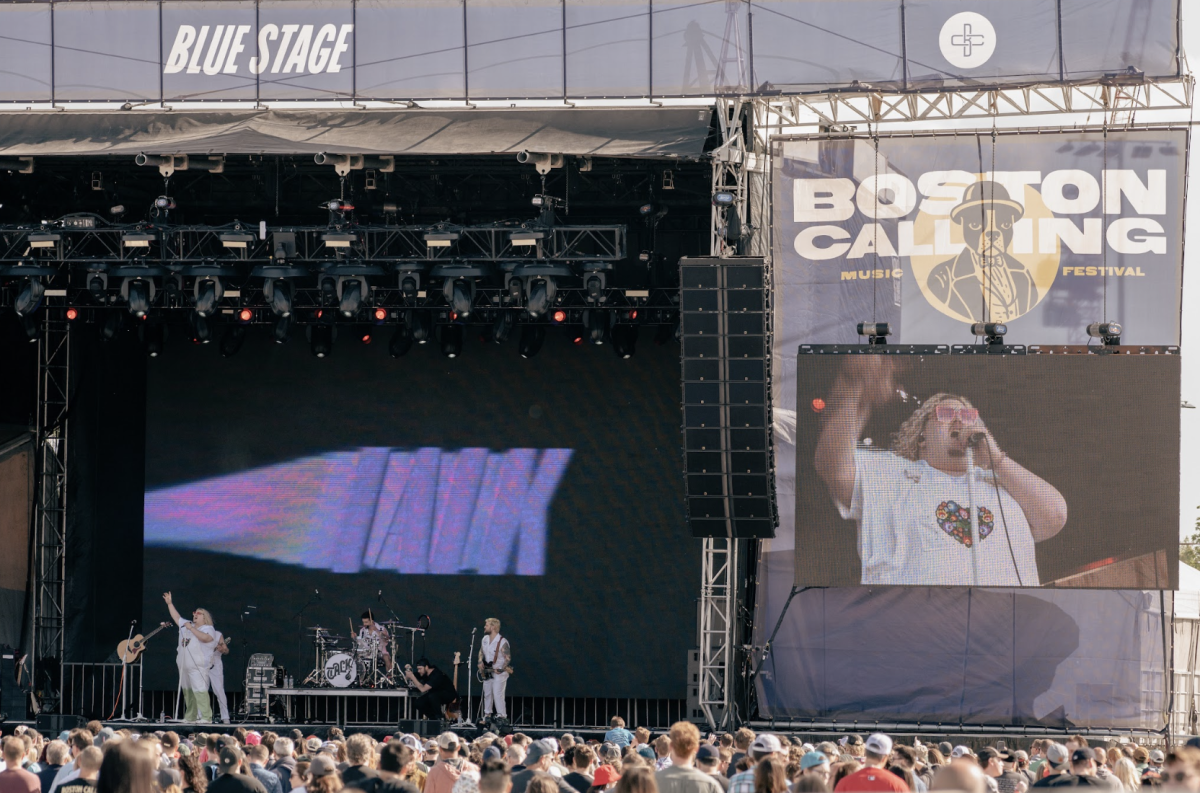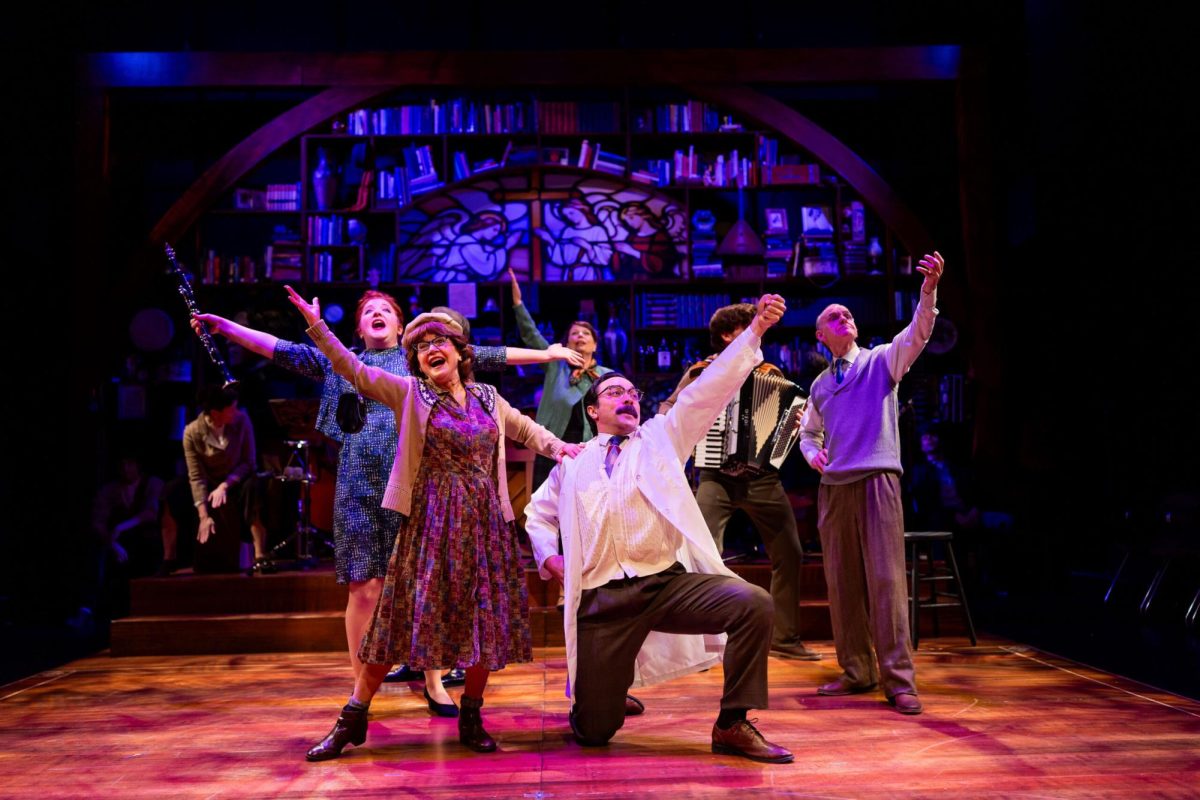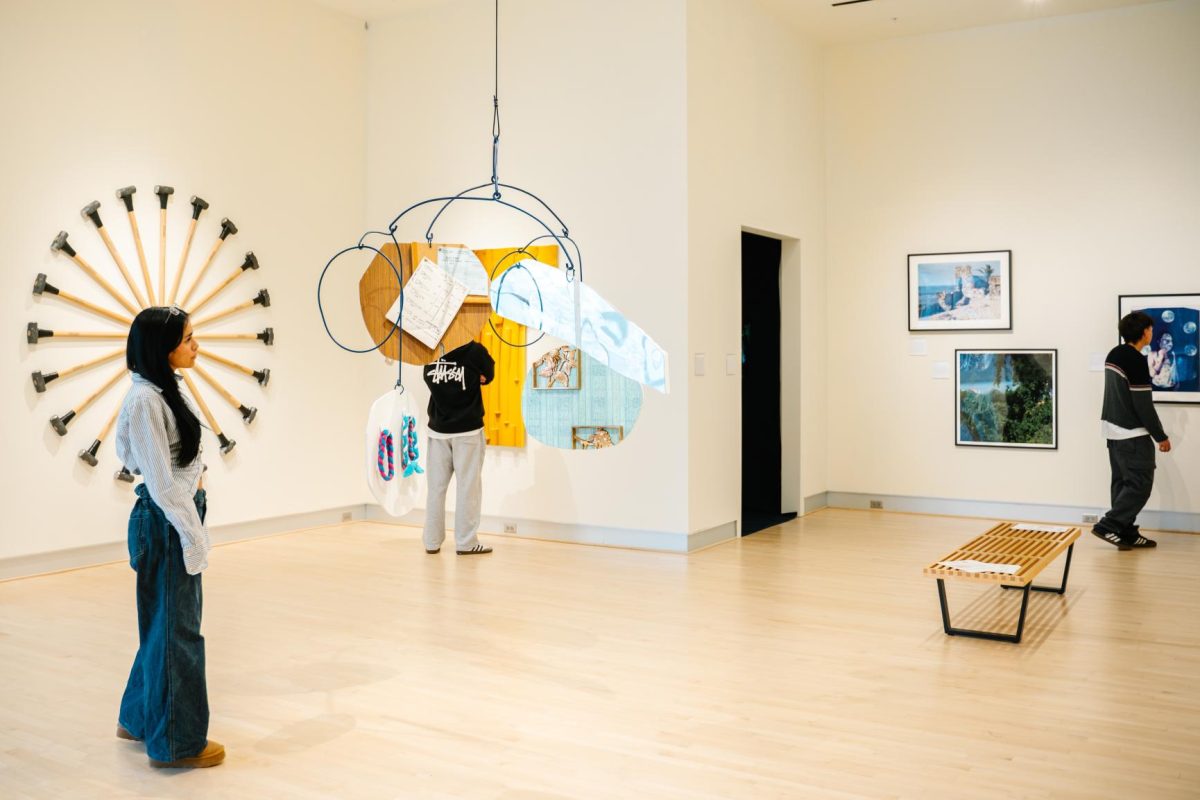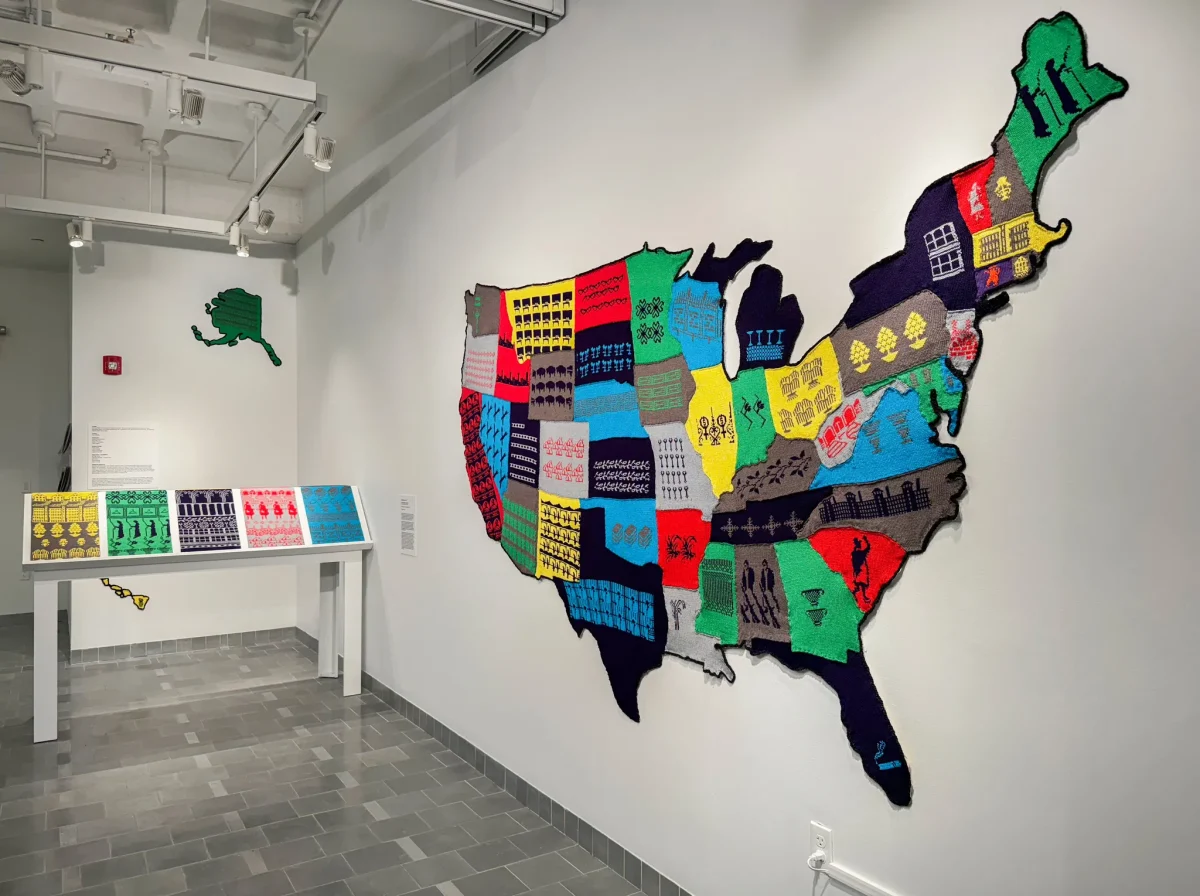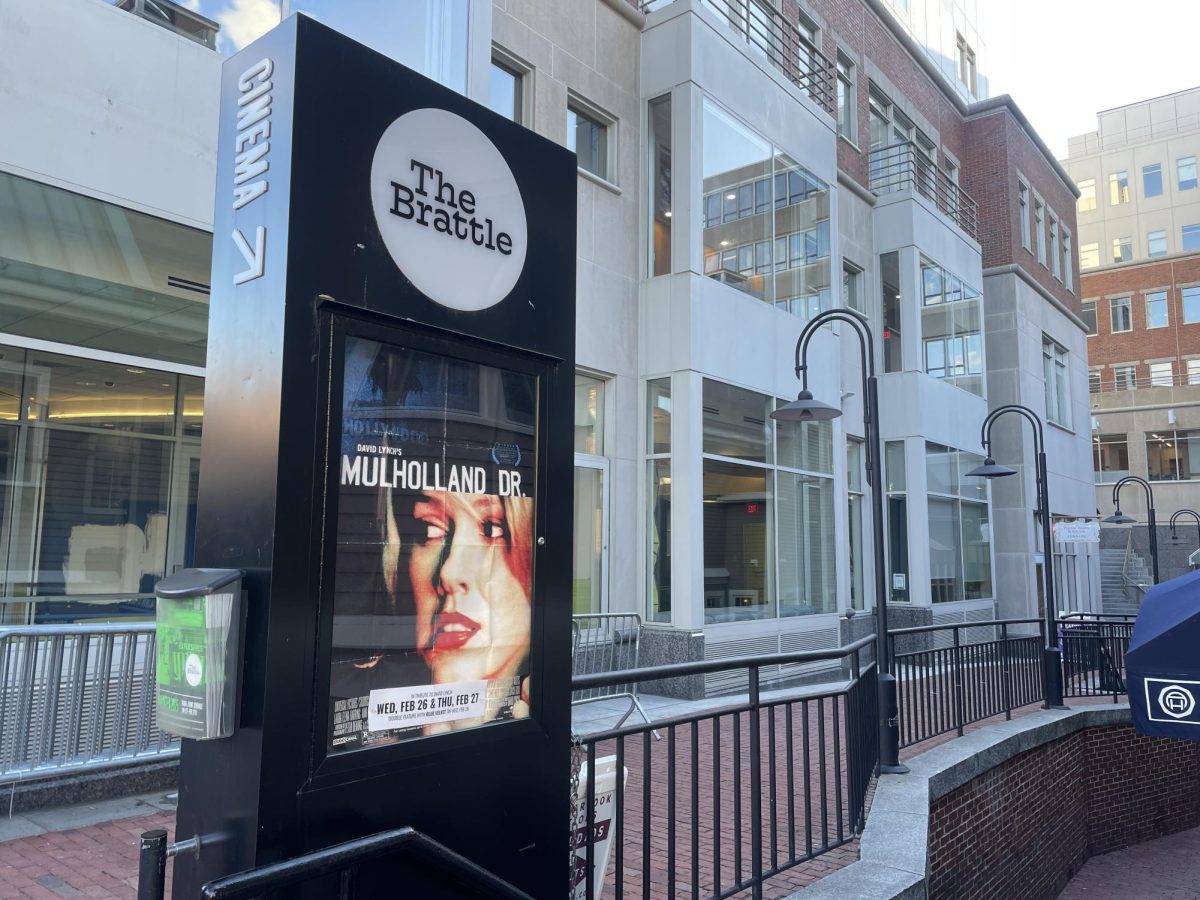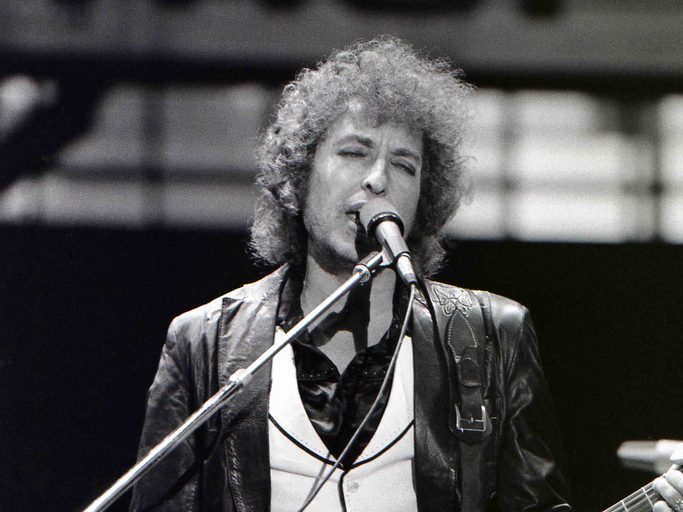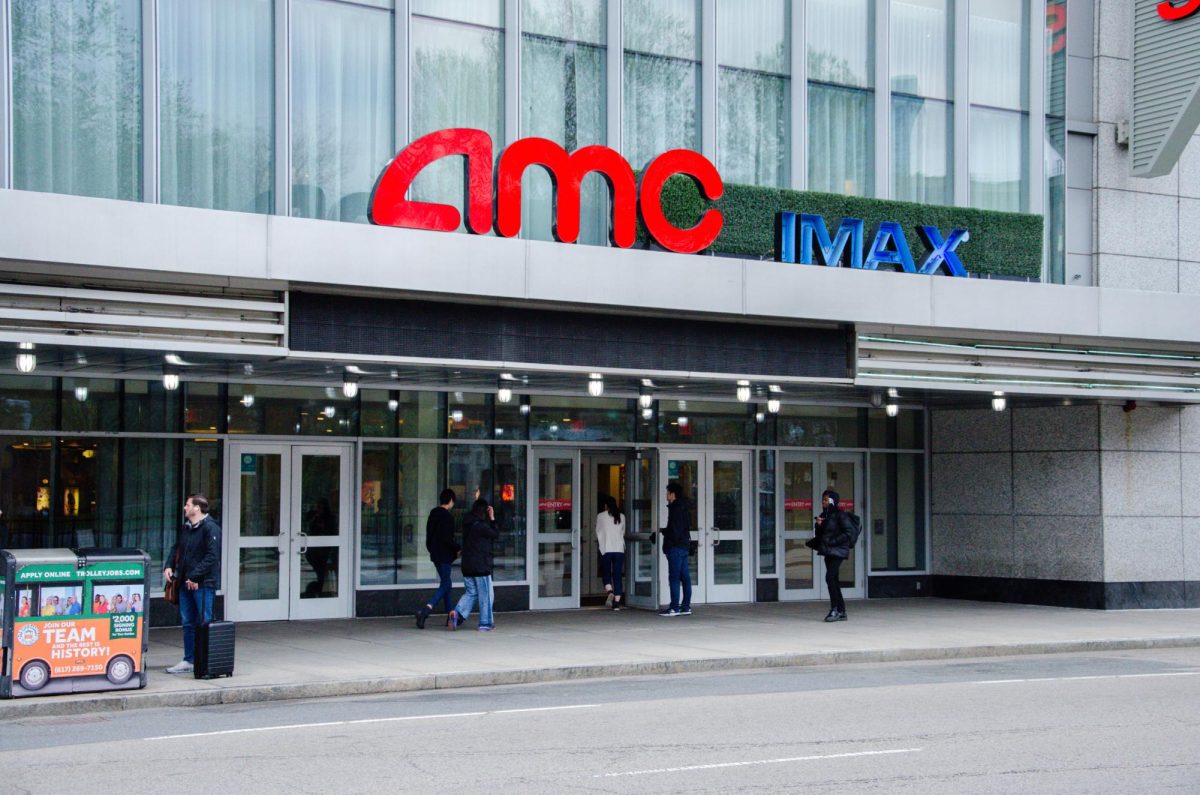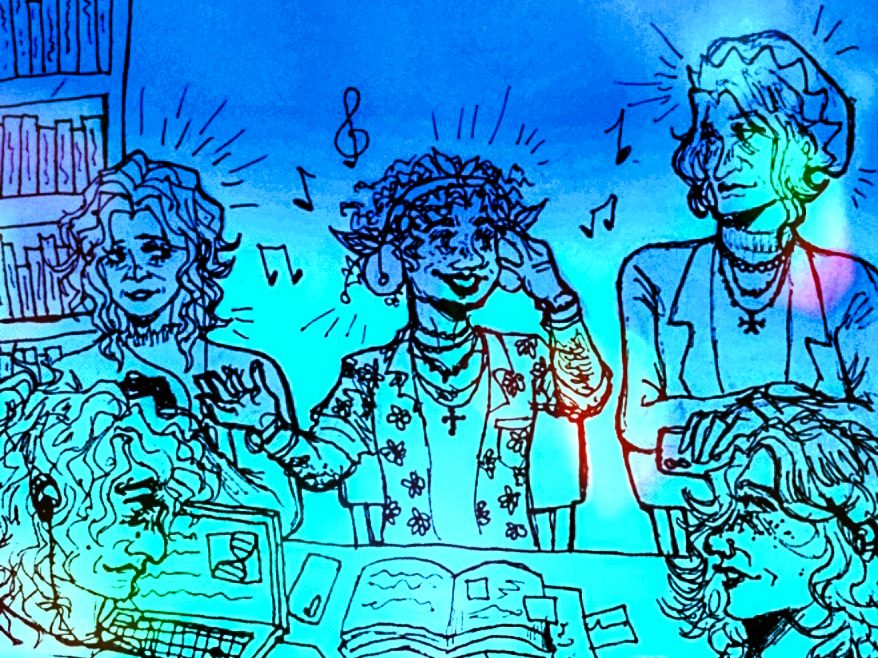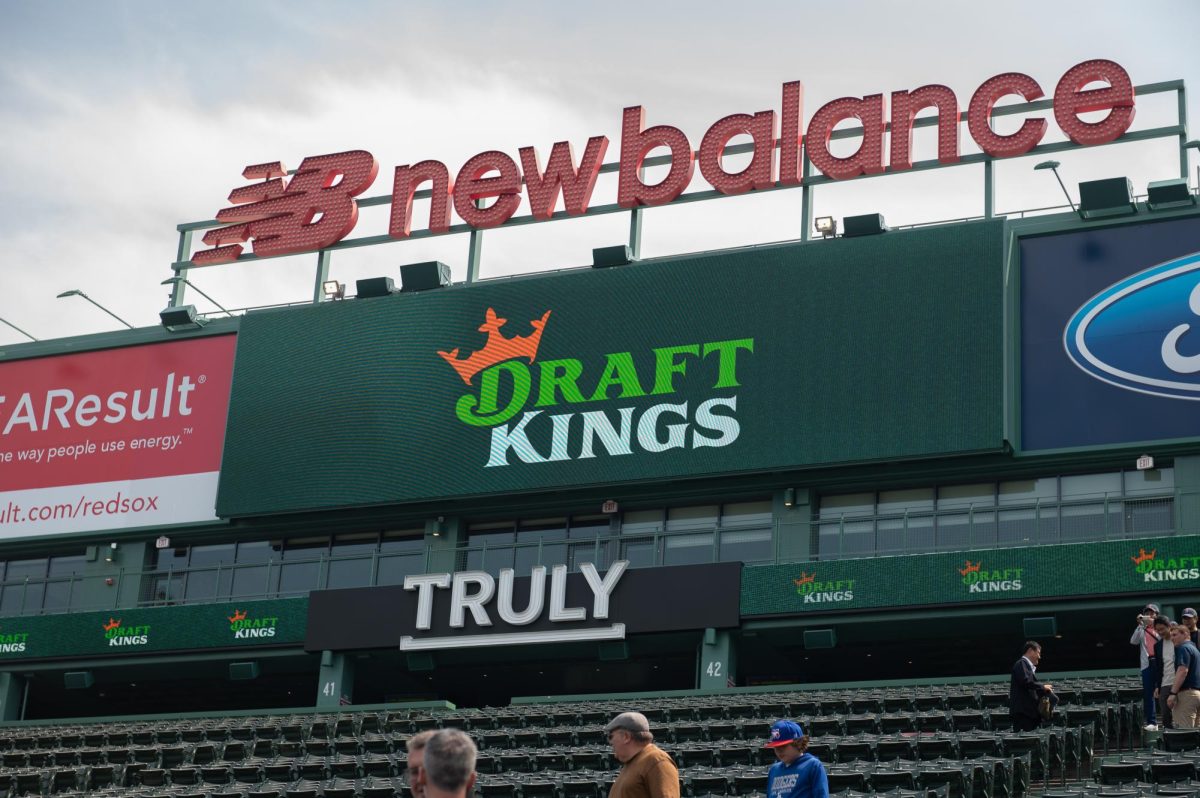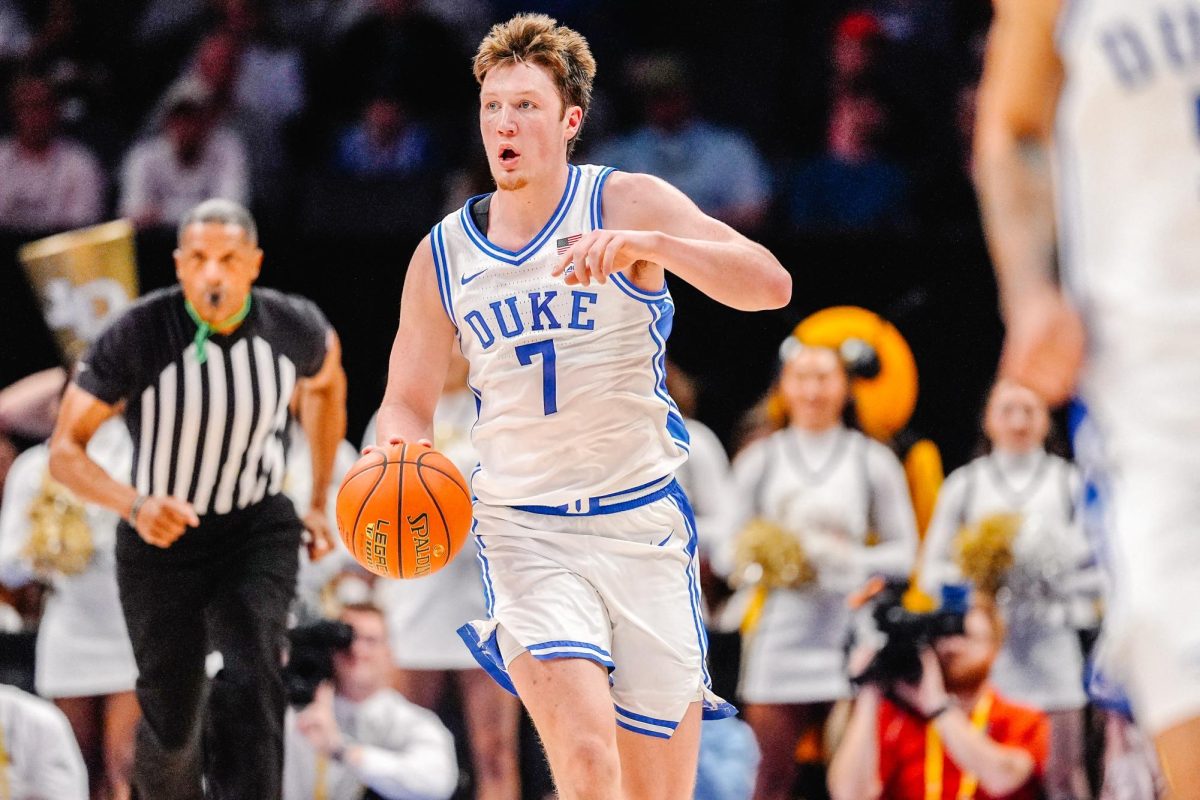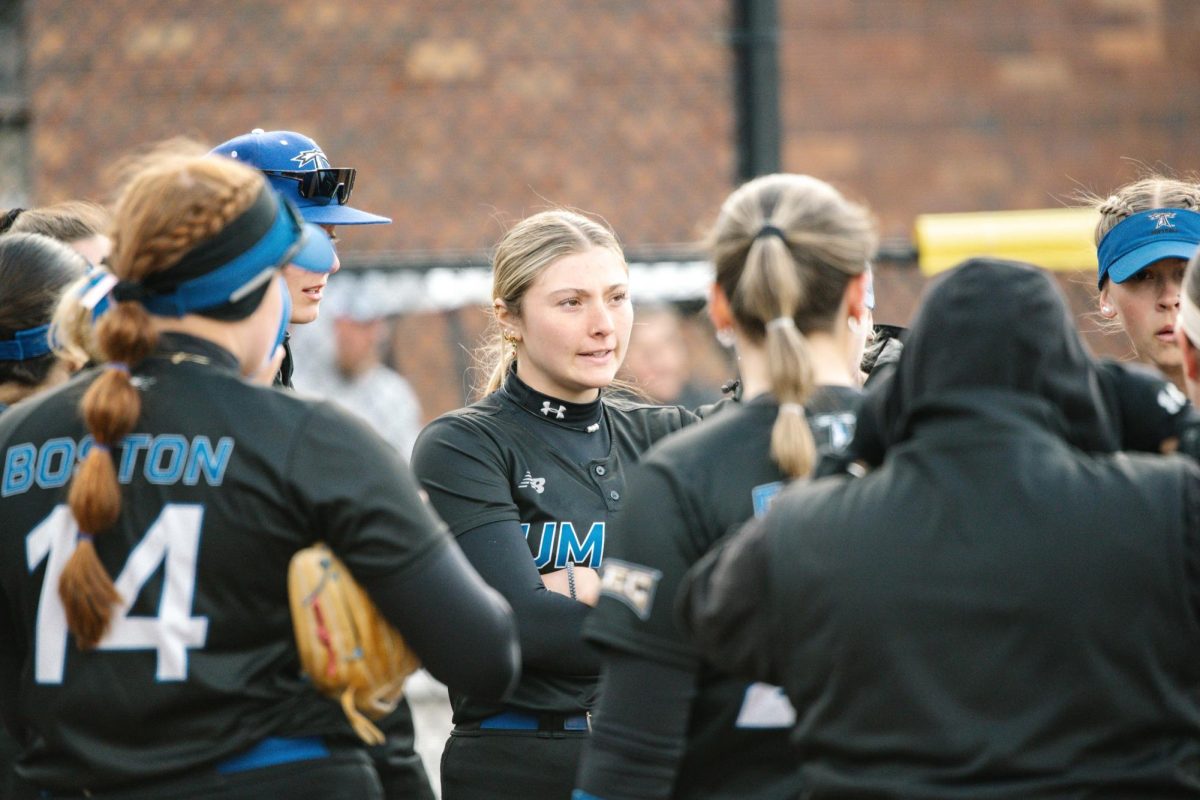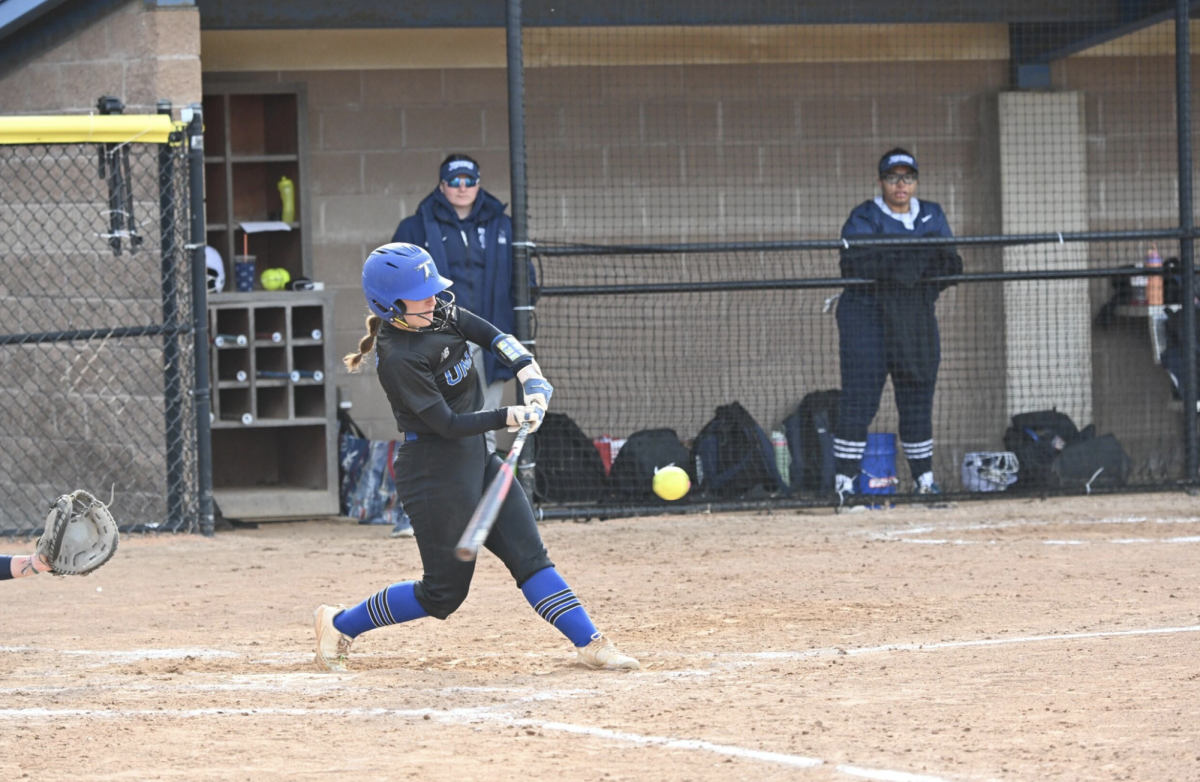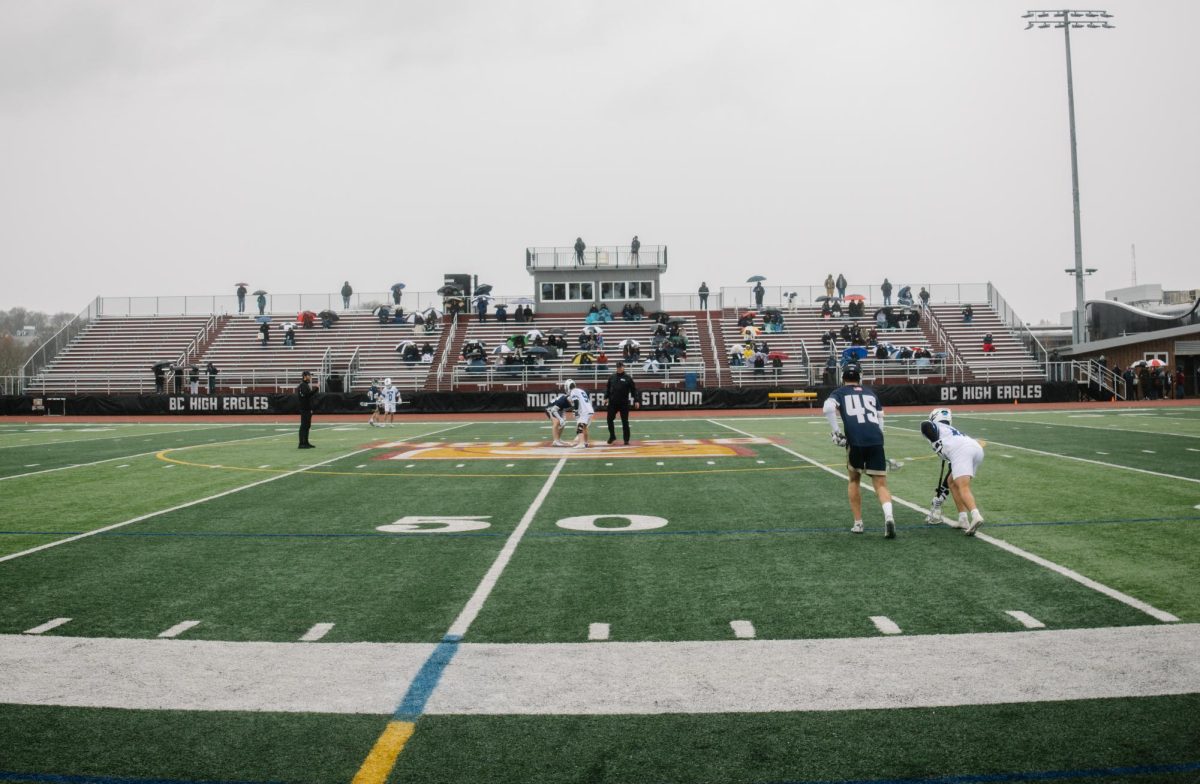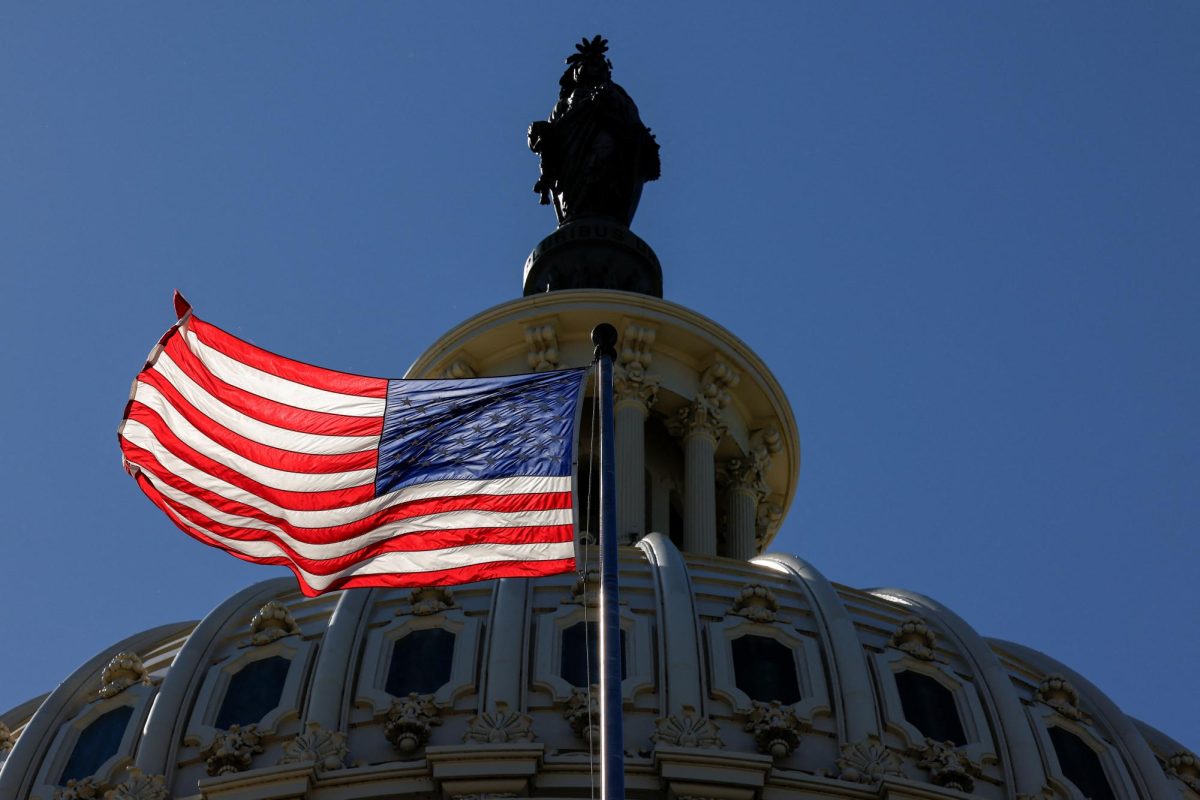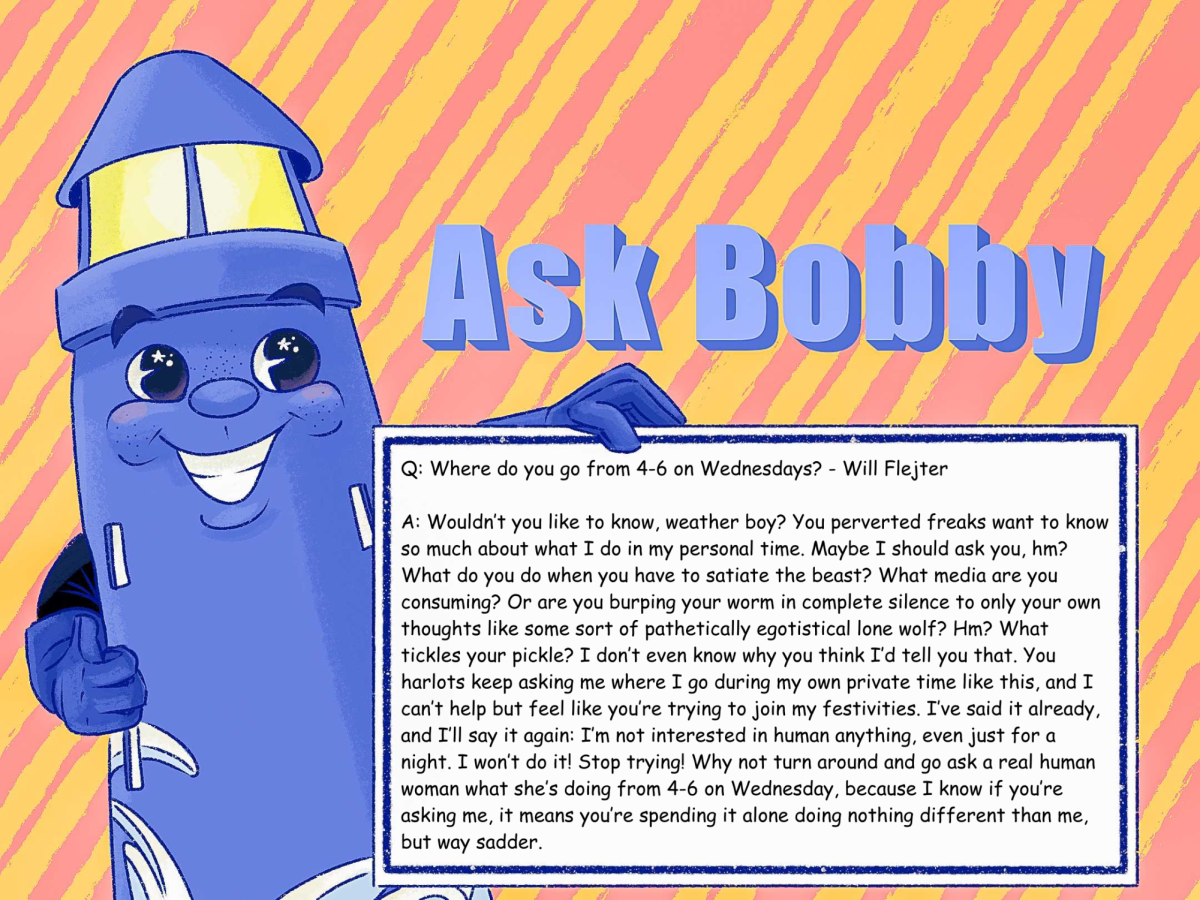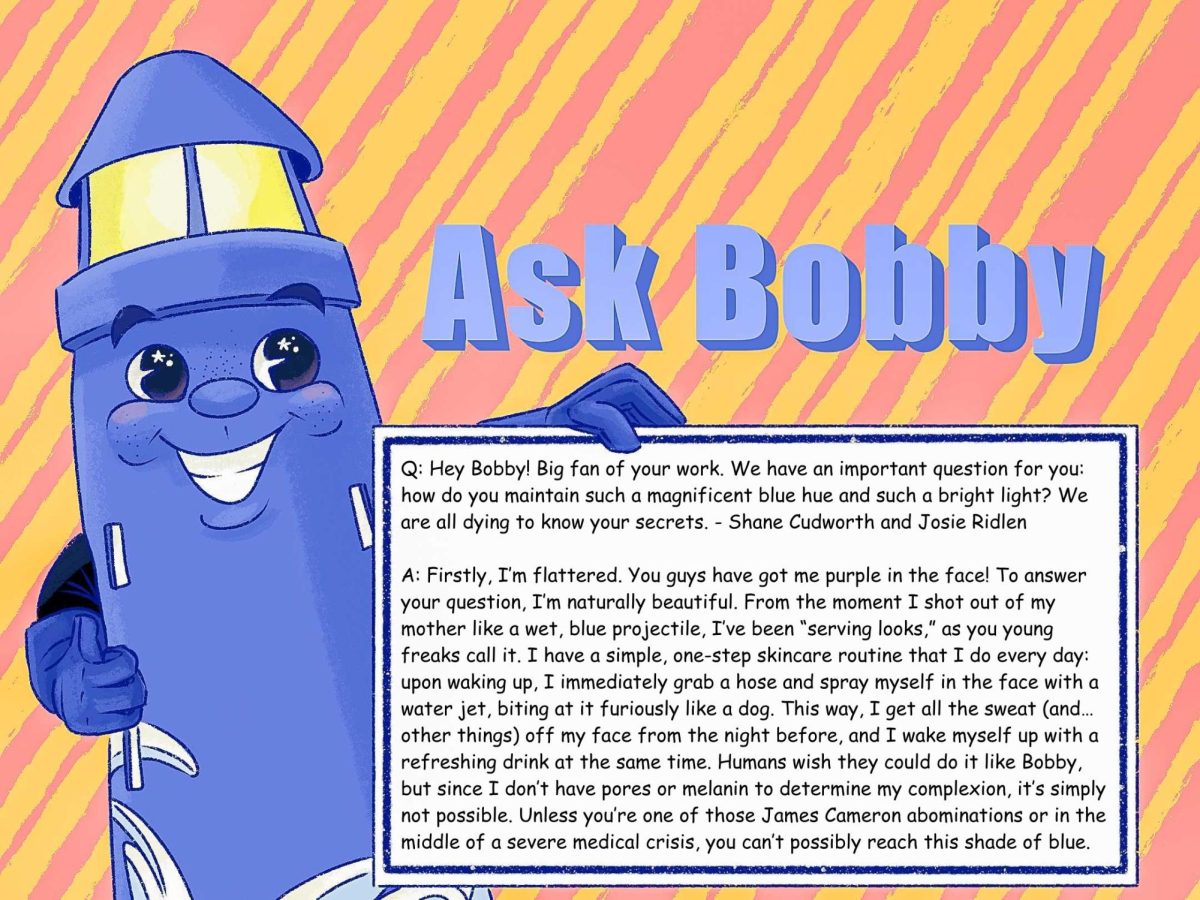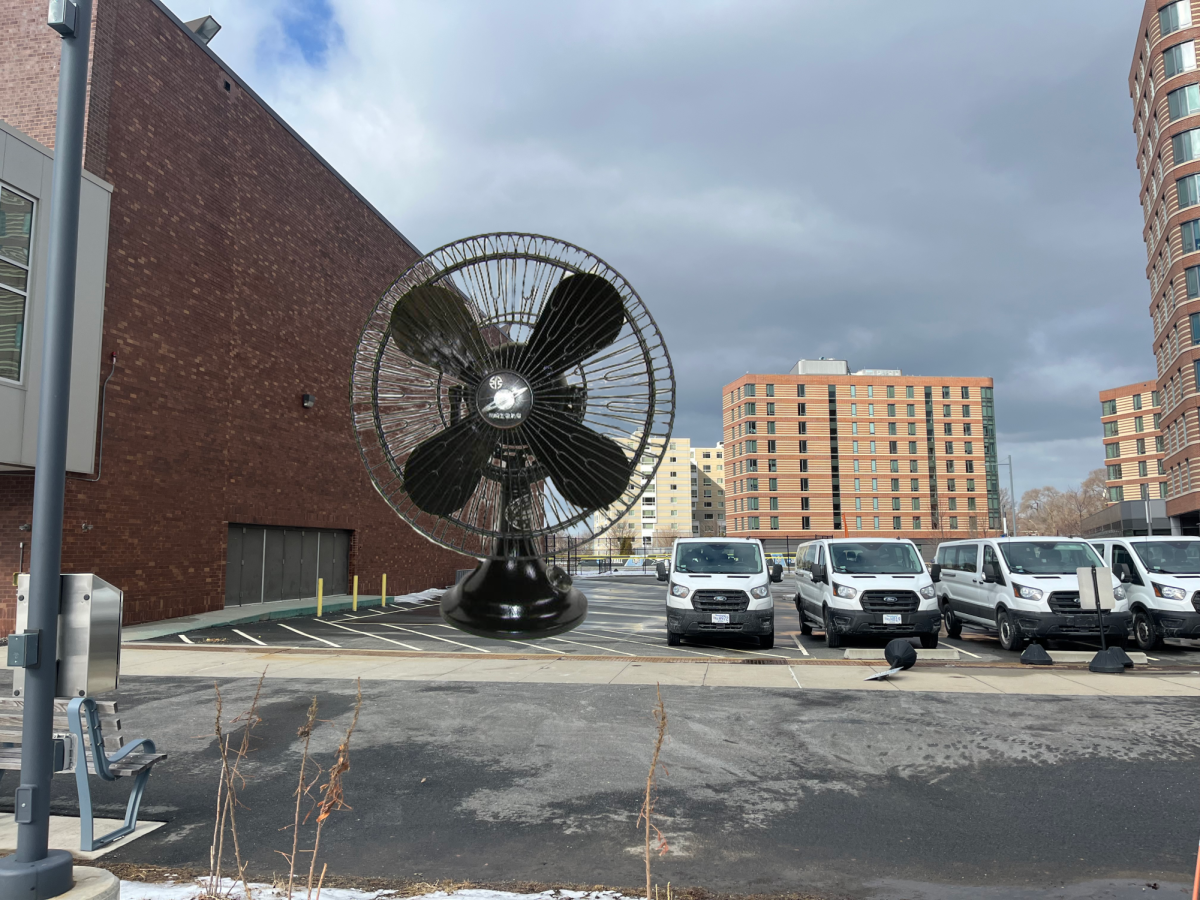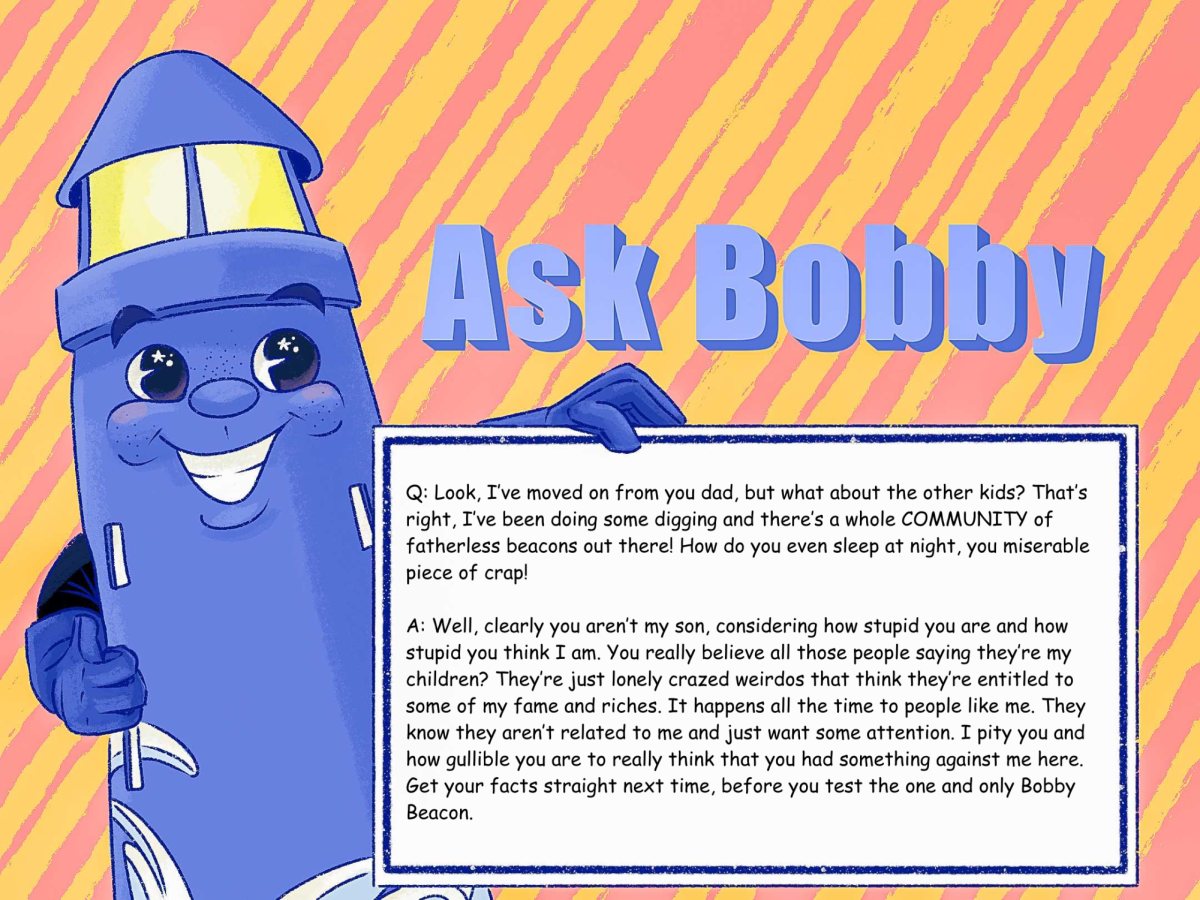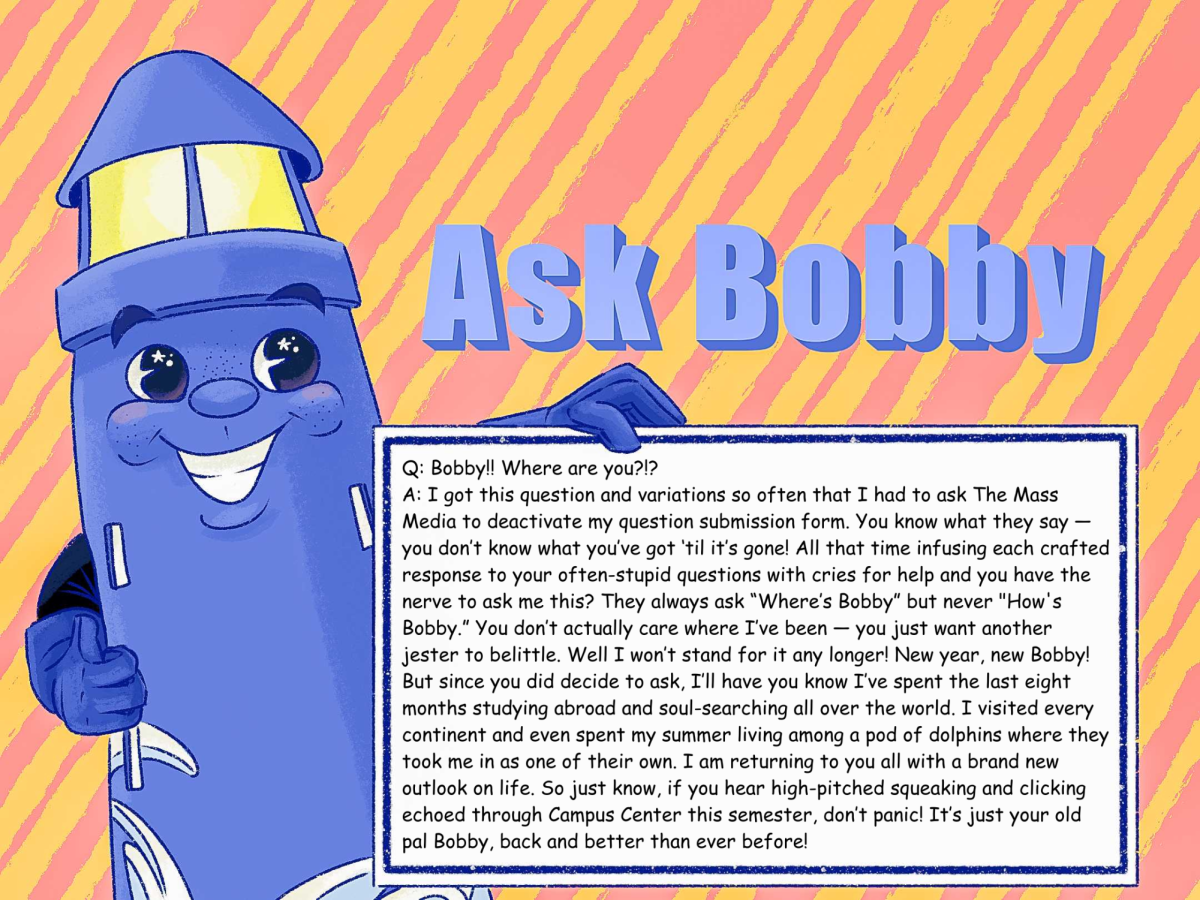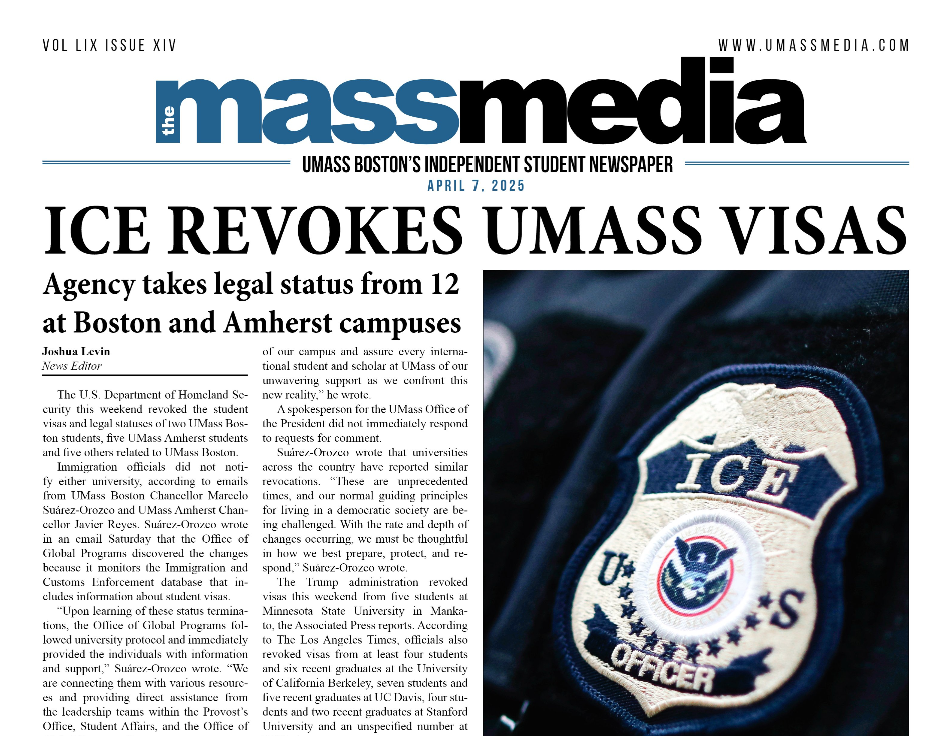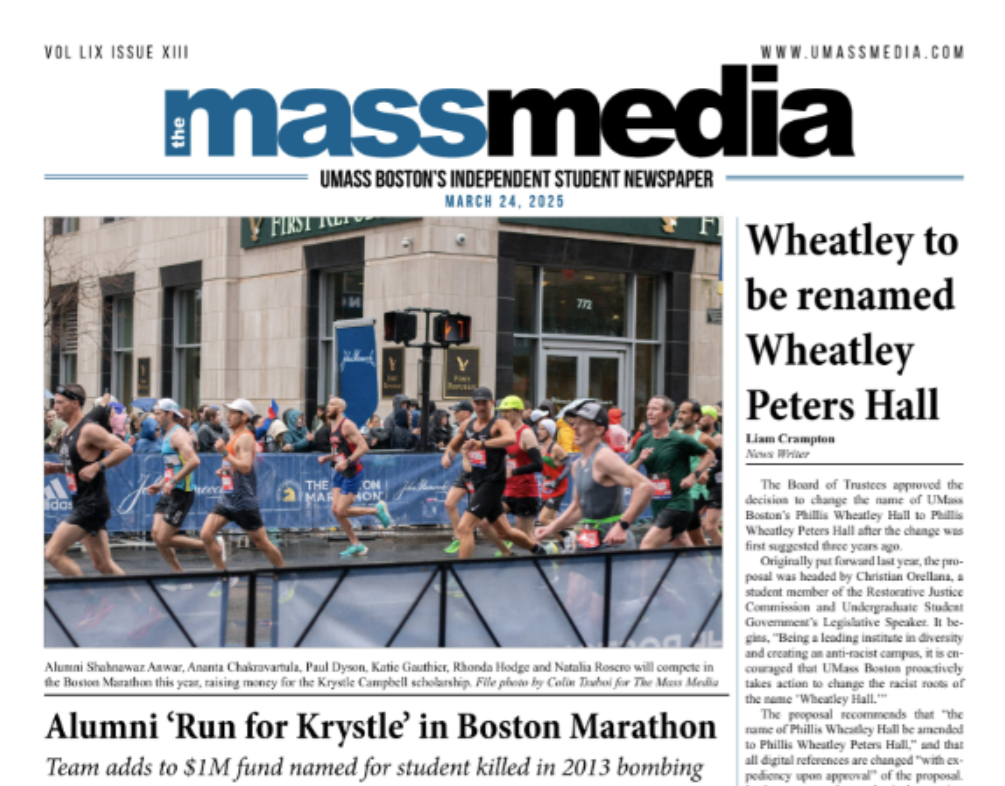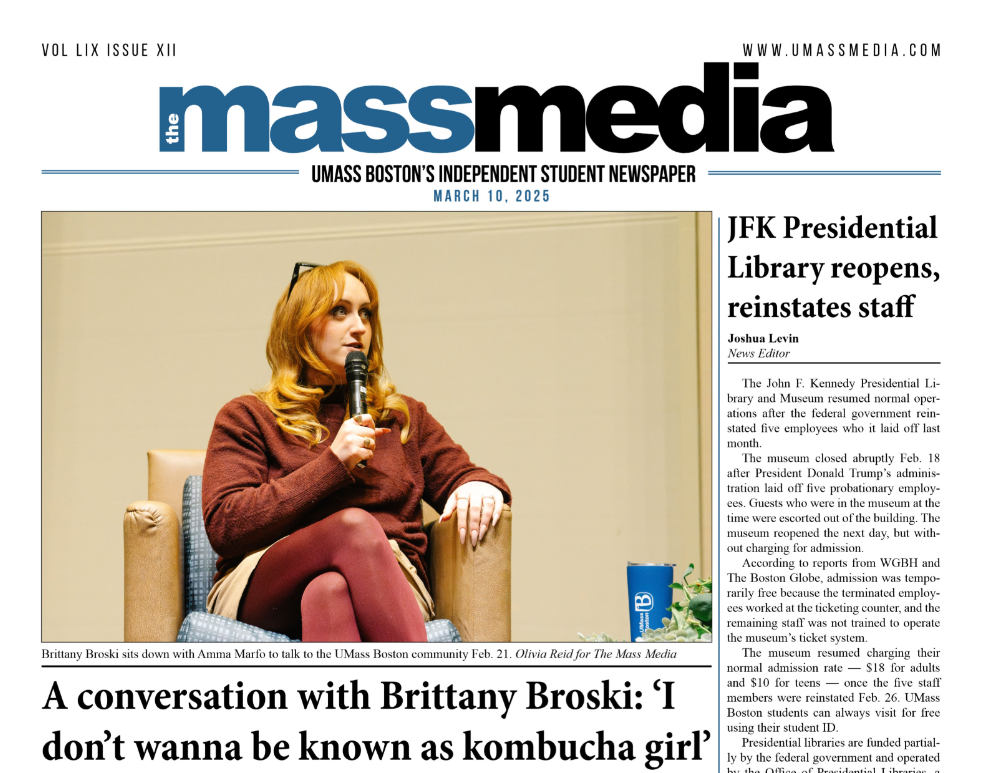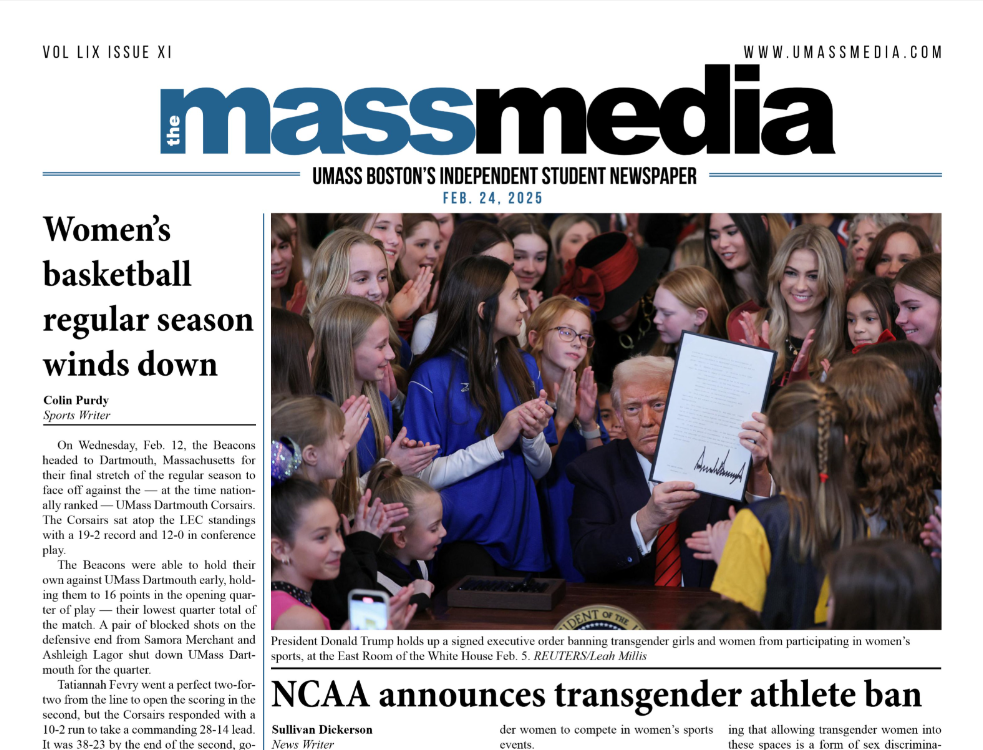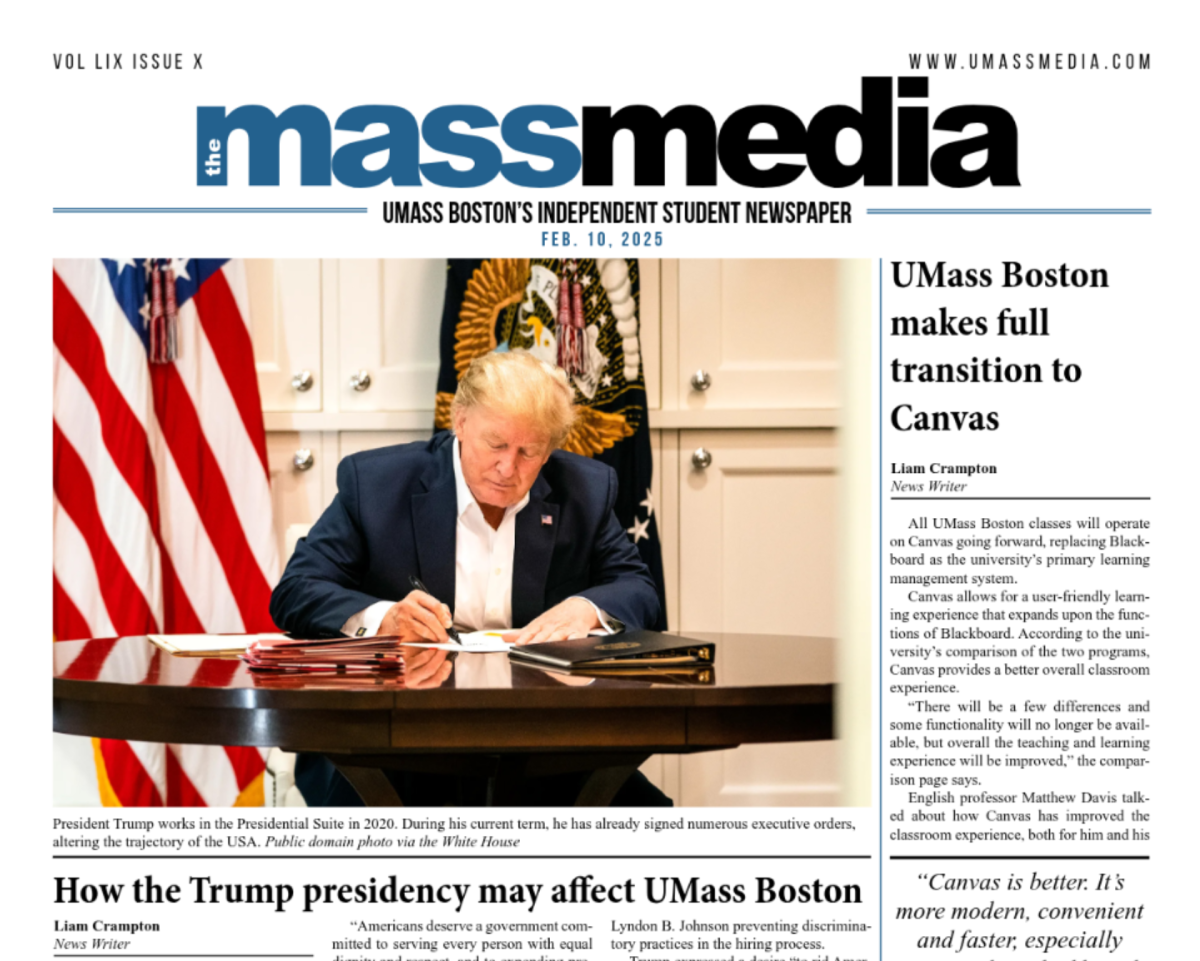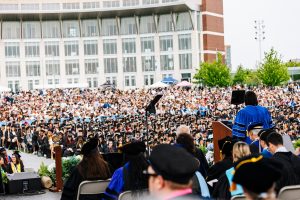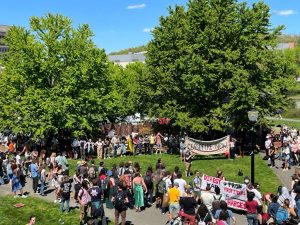Over 2,000 Graduate UMB
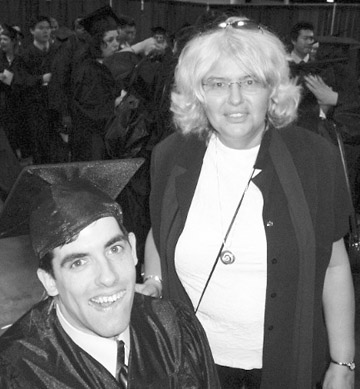
Professor Ann Withorn with a student before graduation. – Photo by Gintautas Dumcius
June 10, 2004
Over two thousand students gathered at the Bayside Expo Center last week to graduate from UMass Boston, marking the end of the academic year and the beginning of a new stage in their varied lives.
As he sat and waited for the ceremonies to begin with his classmates from the College of Science and Mathematics, Ed Butler recalled his “wonderful experience” at UMass. An earth and geographic sciences major, he remembered a trip in 2000 to Nova Scotia with Professor Jack Looney for a coastal environment course.
“I wish I did it forty years ago,” he said of school.
Acclaimed crime novelist Dennis Lehane was on hand as the commencement speaker and the recipient of an honorary degree.
Lehane, a Dorchester native who dropped out of UMass Boston after attending for only a year, jokingly told how a fellow dropout was surprised to learn Lehane was receiving a degree. “When he heard about this, you know, he said, ‘They give doctorates for playing Space Invaders and Missile Commander these days?'” said Lehane, to laughter and clapping from the graduates that often punctuated his speech.
Like many commencement speakers, Lehane also waded into political waters. “I guess I would be a poster child for those who make good, very good money, trafficking in the myth of the self-made man. The pull-yourselves-up-by-your-bootstraps folks who shove code words like ‘American individualism’ down our throats, just when they’re closing the door in our faces,” said Lehane, whose best-selling novel Mystic River was made into a movie by Clint Eastwood. “I am not a self-made man. This self was made with the help of others,” he said.
Lehane took the opportunity to call for a return to empathy. “Since 9/11, something happened to empathy in this country. I don’t know what exactly, but it ain’t good,” he said. “I think human beings are at their most dangerous when they lose their empathy. When they objectify other human beings. When they’re so sure they’re right, they can justify a ‘take-no-prisoners’ attitude, and I don’t know when mercy and decency became signs of weakness in this country.”
“They want to privatize education, privatize Medicare, privatize you right out of every good thing that makes this country great,” he said. “Make no mistake about it, these are the same people whose ancestors and ideological compatriots many years ago were against Social Security, affordable health care, worker’s comp, disability insurance, pensions, the eight hour day, the forty-hour week, the weekend, women’s right to vote, blacks’ right to vote, integration, special benefits for veterans. All of this, while they wrap themselves in the flag, and tell us what America is.”
Lehane pointed out public education is a form of welfare. “This, what you see around you right now, what you’re graduating from, this is welfare. Public education is a form of public welfare, a form of public assistance. So next time you think about demanding that someone pull themselves up by his bootstrap, ask yourself if you did. Or did you have some help from your parents, from the state, from the school,” he said to cheers.
‘Part of the Solution’
Class speaker Janet Marcous, a deaf and blind student at the College of Public and Community Service where she created her own major in deaf-blind studies, reminded the roaring graduates what a special day it was. “We’ll never be together in this room again,” she said, going on to praise UMass Boston for its “academic excellence.”
“I think here, we’re part of the solution,” she said.
Steven Schwartz, chair of the psychology department and faculty representative to the Board of Trustees, seemed to agree, calling Marcous “just amazing.”
Up on the stage during the ceremony, Schwartz had sat next to her. “The smile and enthusiasm she projected sent a tingle down your spine,” he said.
Outside, as graduates milled around with family members in the warm weather, William Alexander stood in line to grab some food from a vendor.
“It was well worth the effort,” he said of his college years and his doctorate. Alexander had moved from Los Angeles and started in 1995 at the grad school in clinical studies. “UMass Boston was my first choice,” he said.
Alexander remembered how he had interviewed for the program. “The airlines lost my luggage, so I interviewed in jeans and t-shirt, but I was selected,” he said. “I think the most satisfying thing about this whole experience for me was eighteen years ago I was homeless and a drug addict.”
He soon got his life back together, but in his fifth year of sobriety, was laid off. He decided to go back to school and become a substance abuse counselor.
After his second semester, his psychology professor asked him if he thought about getting a professional degree. That’s another nine years, thought Alexander, and he would be in his mid-fifties.
“She says, ‘You’re going to be in your mid-fifties anyway, so you can be in your mid-fifties with a Ph.D., or without a Ph.D.'” he said. “And here I am, three years longer than she forecasted, but there it is.”
Alexander says he will probably be teaching a course at UMass Boston in the fall, “The Psychology of the African-American Experience.” “I think I want to work at an undergrad level to inspire other students who really never thought they could do it,” he said. “Because I never thought I had a brain, and then someone told me I did.”
Commencement ‘Well-Run’
The commencement appeared to be well received. “I think this was a very well-run commencement,” noted James Ward, professor of political science, as he waited for the graduation ceremonies for the McCormack Graduate School of Policy Studies to start.
“I particularly liked Dennis Lehane’s speech,” he said. “One of the best I’ve heard in a long time.”
Carol Hardy-Fanta, director of the Center for Women in Politics and Public Policy, called it an “outstanding commencement,” with Lehane doing a “great job of stirring our students on to great honor.” “I think Dennis Lehane spoke from the heart and the political left,” she said.
The university’s thirty-sixth commencement was full of several firsts and lasts: It was the first time a school song was created and sung, and the first time students could collect their diplomas on the scene. In previous years, the university would mail them.
It was also the last time Chancellor Gora would preside over UMass Boston’s commencement. Gora accepted an offer to become the thirteenth president of Ball State University in Muncie, Indiana. She leaves in August.
Gora told the crowd the song celebrates the traditions and values of the university, and draws inspiration from the other colleges, with which UMass Boston merged in the 1980s. “With it, we celebrate the common threads,” she said.
In an e-mail several days later, Gora called it “one of the most moving commencements I have attended in 25 years in higher education.”
“From Janet Marcous to Dennis Lehane to the introduction of the alma mater – all were moments for reflection and joy,” she wrote. “Dennis’s comments were timeless and unforgettable in their call for empathy and courage.”
Honorary degrees of humane letters and science were also given: Edward Forry, publisher of the Dorchester Reporter and other papers, Ronald Takaki, a professor of ethnic studies at the University of California Berkeley, and Vivian Pinn, the director of the Office of Research on Women’s Health at the National Institutes of Health, respectively.
“Do you want a quote?” Kurt Peary, still clad in graduation garb and holding onto his MBA from the College of Management, briefly pulled himself away from taking pictures with family and friends to echo what must be on the minds of many graduates.
“‘Thank God it’s over!'” he said.


